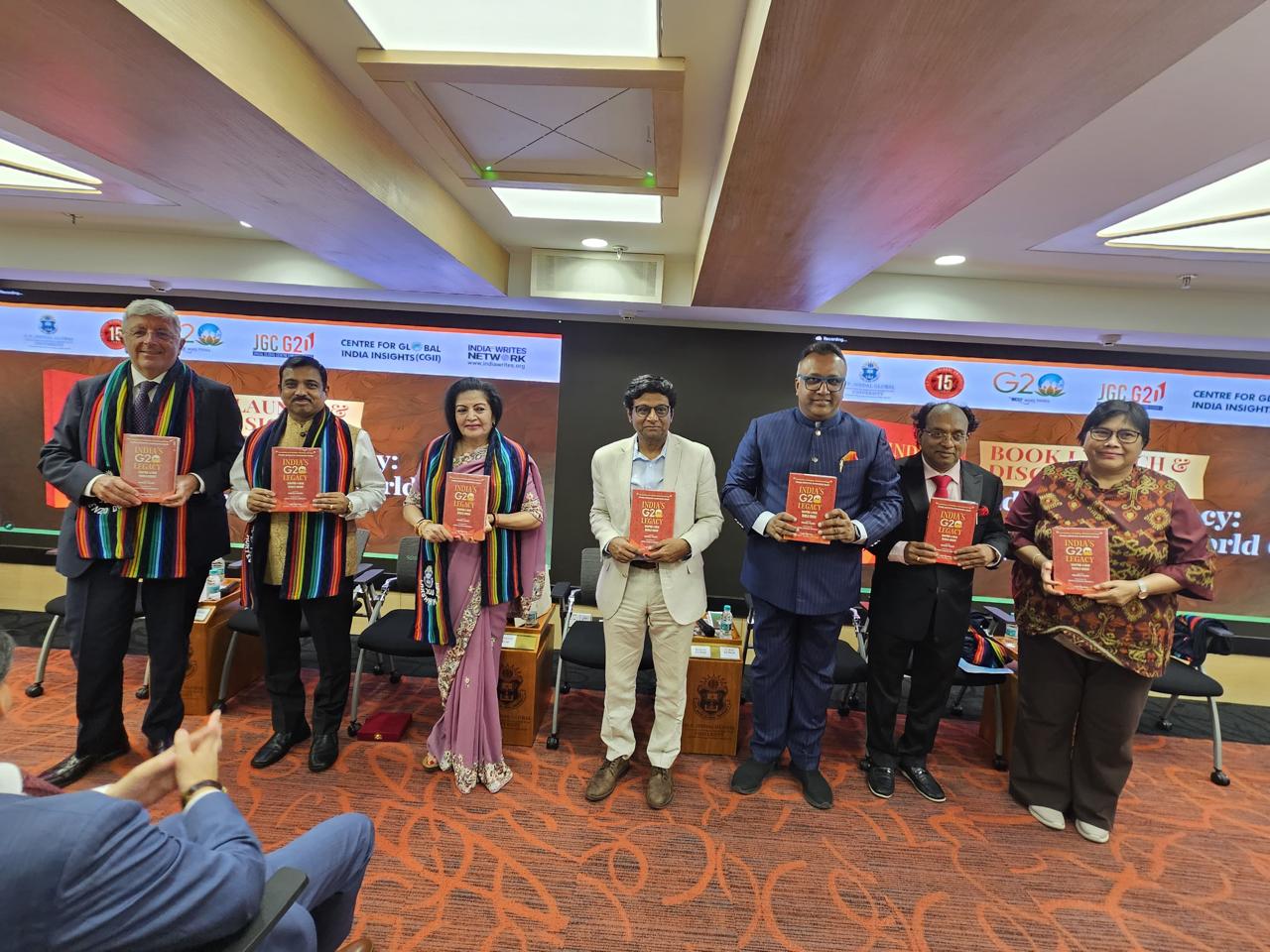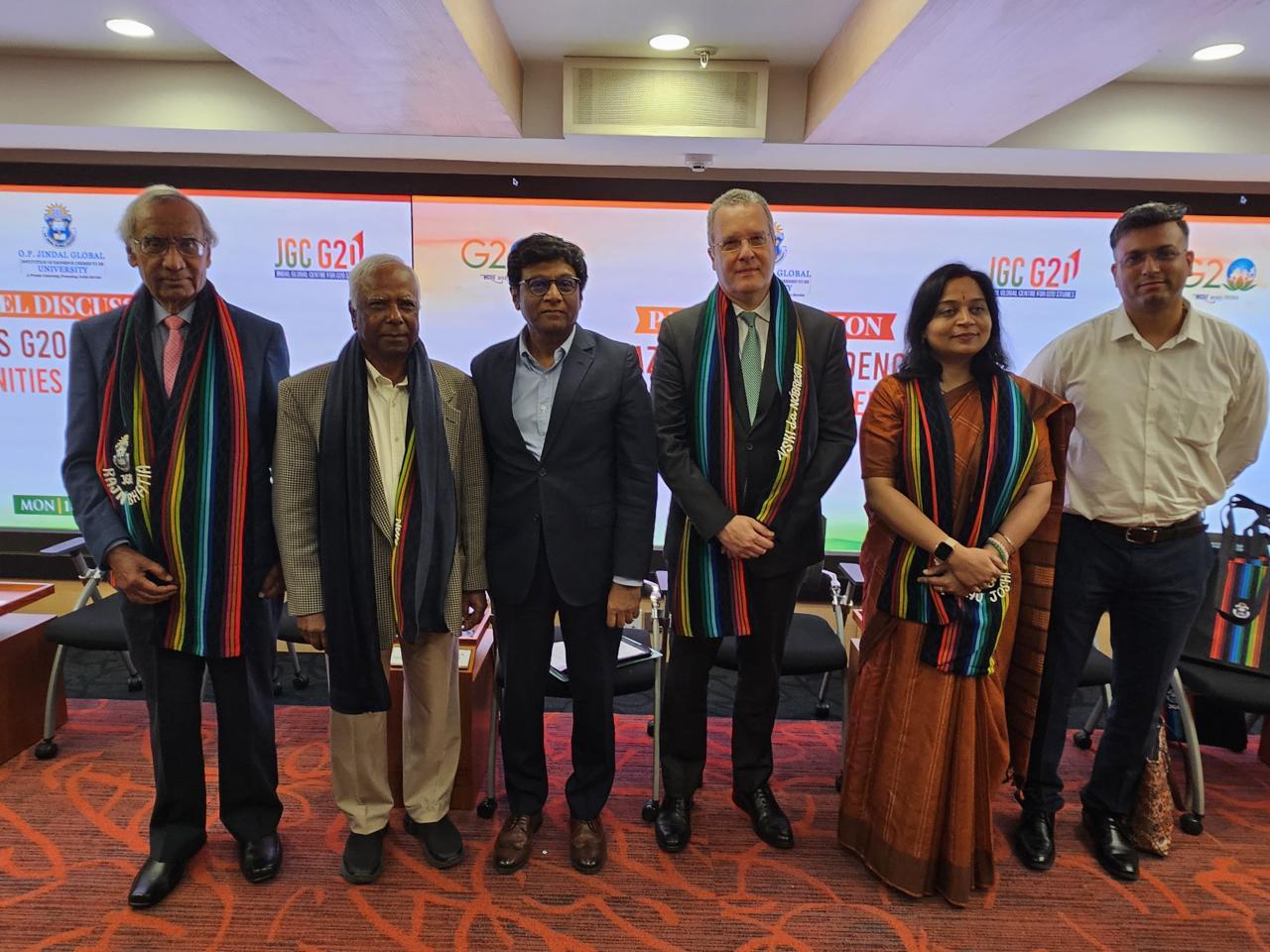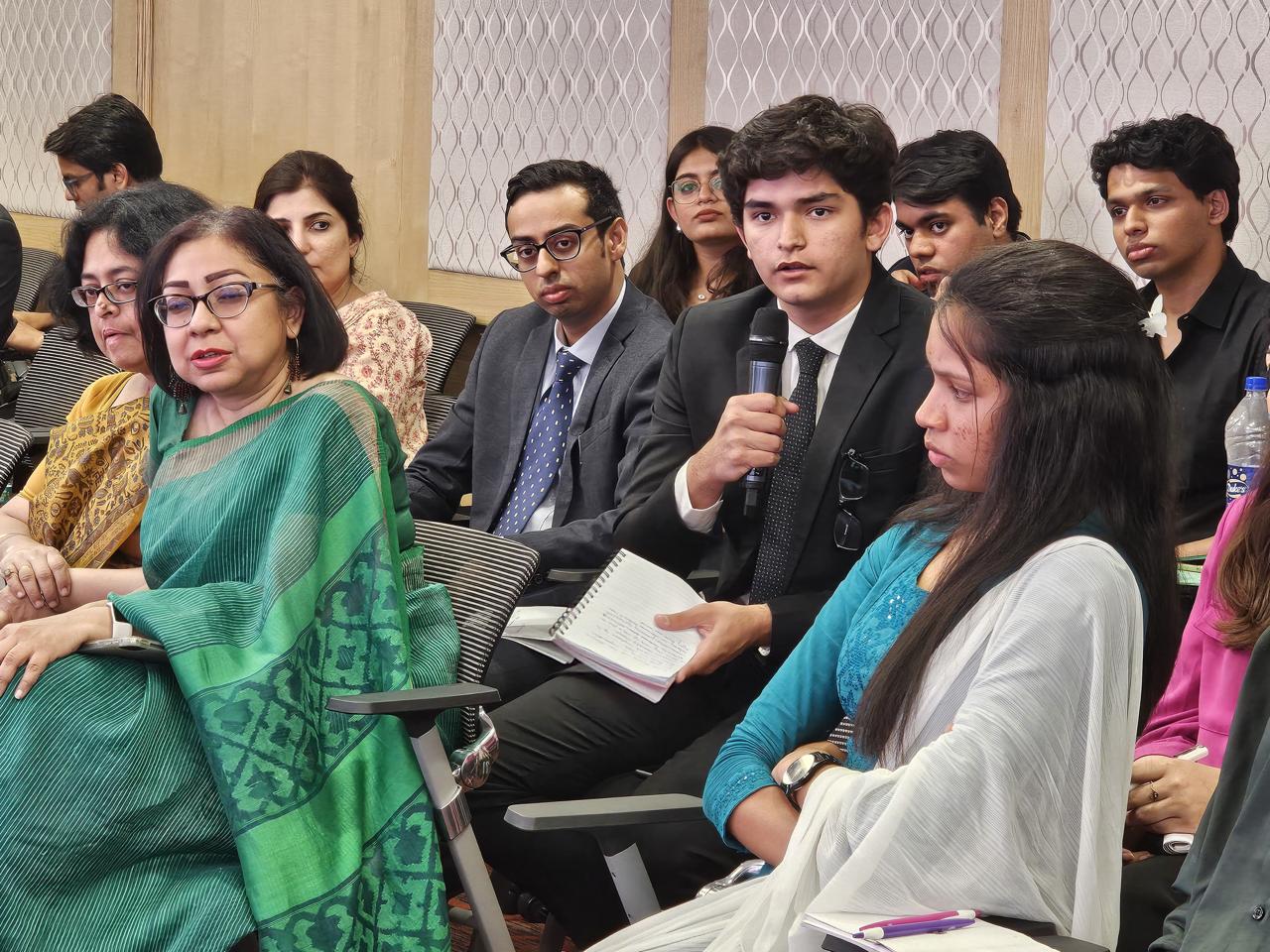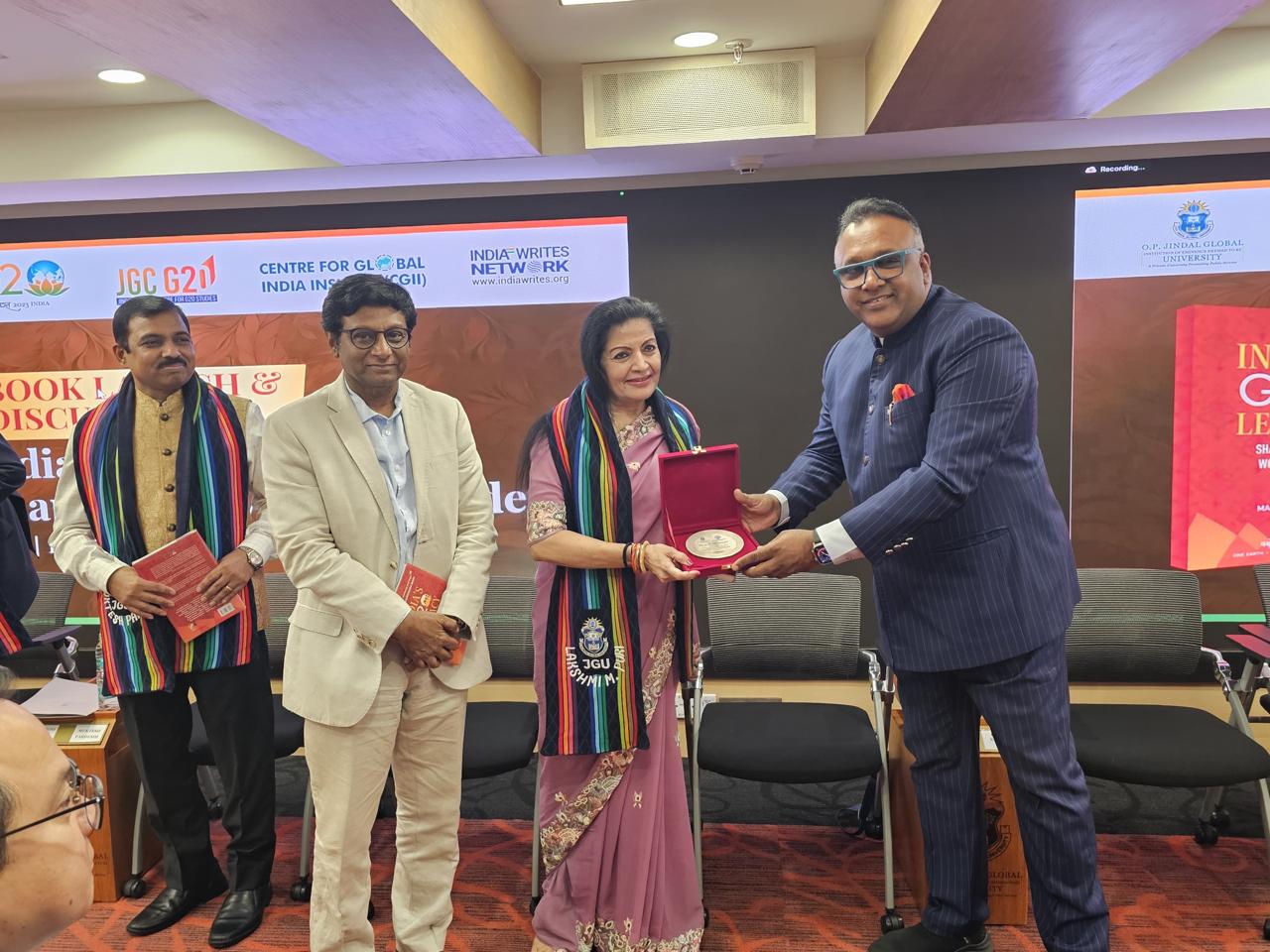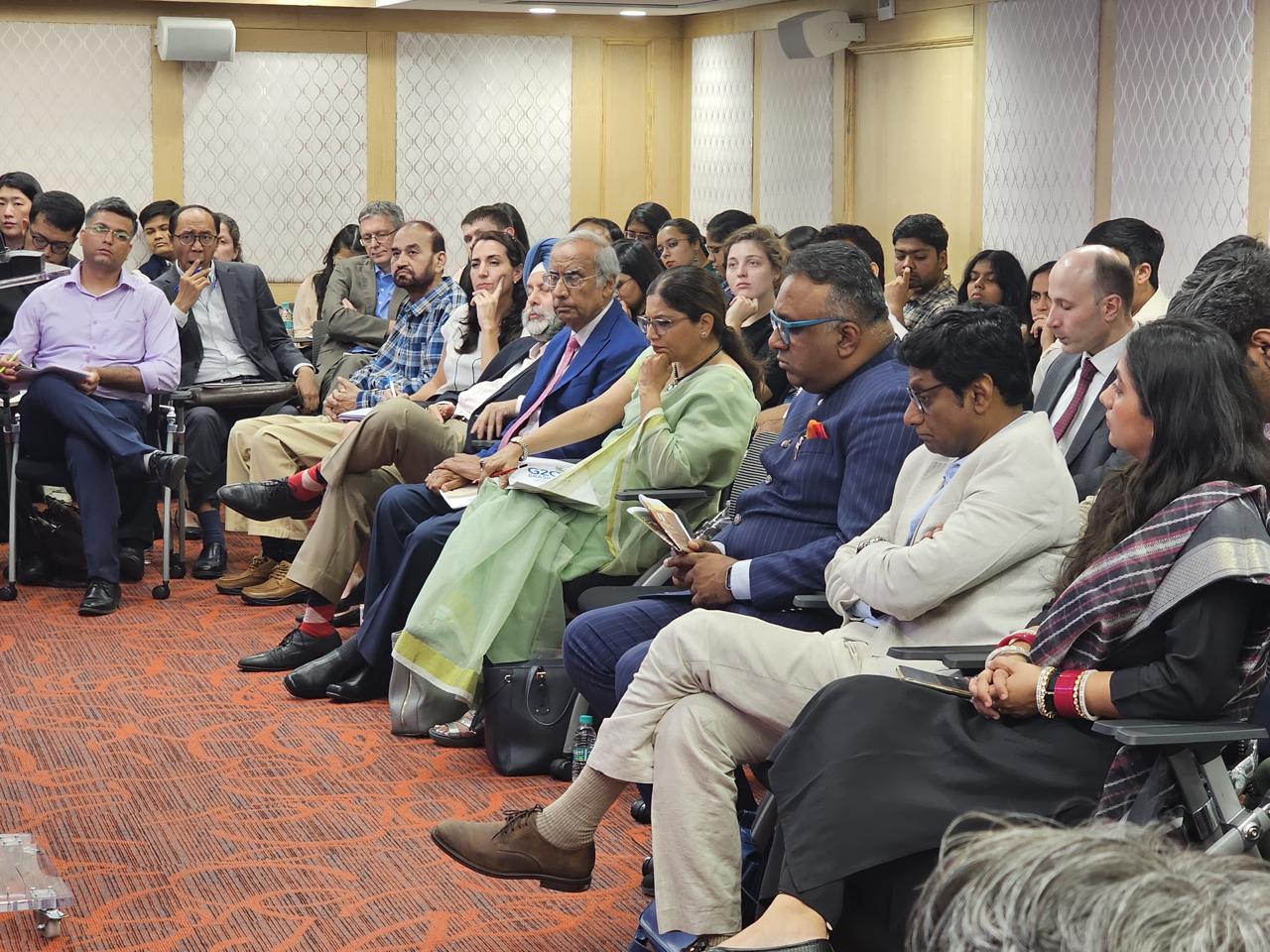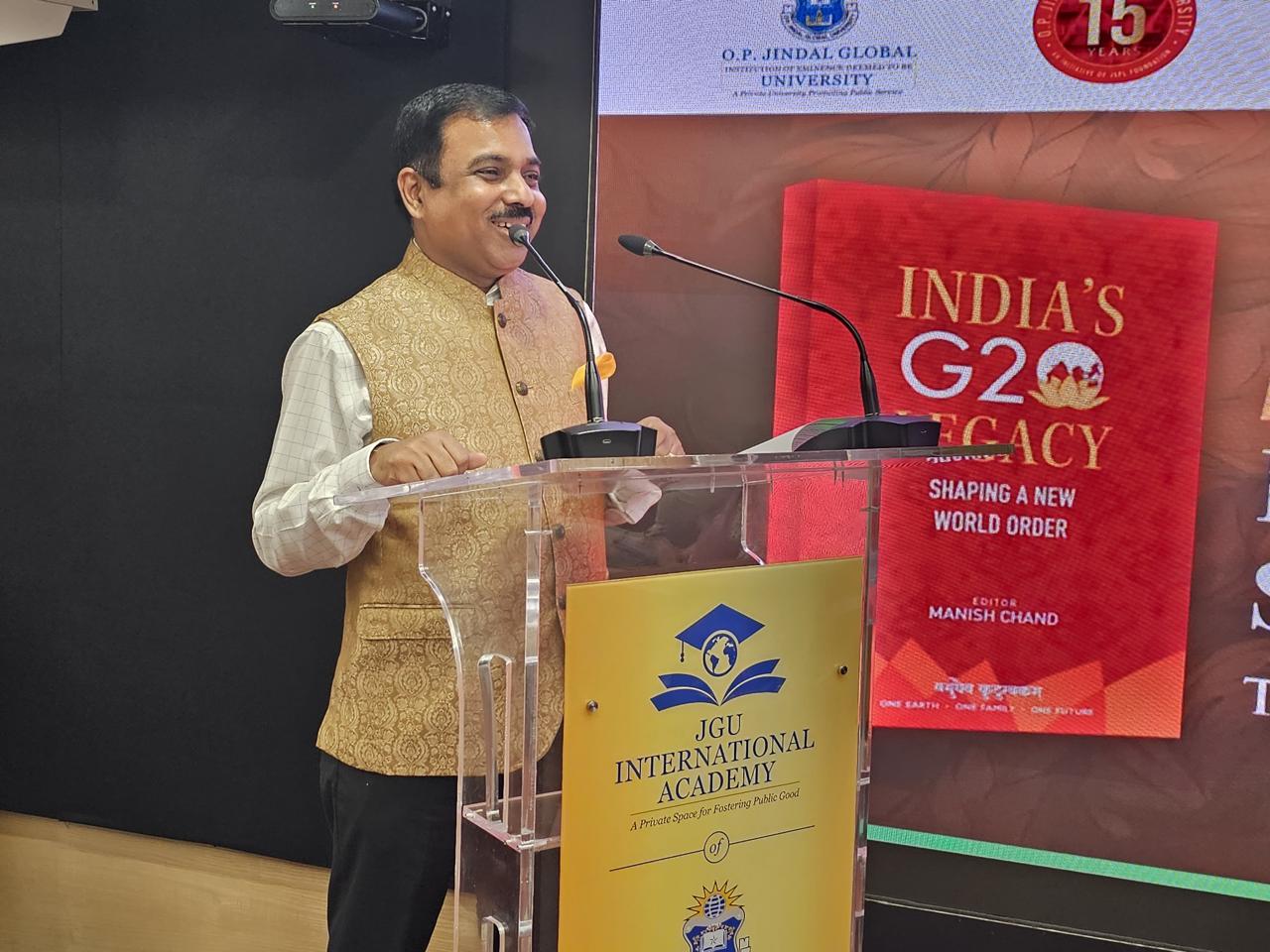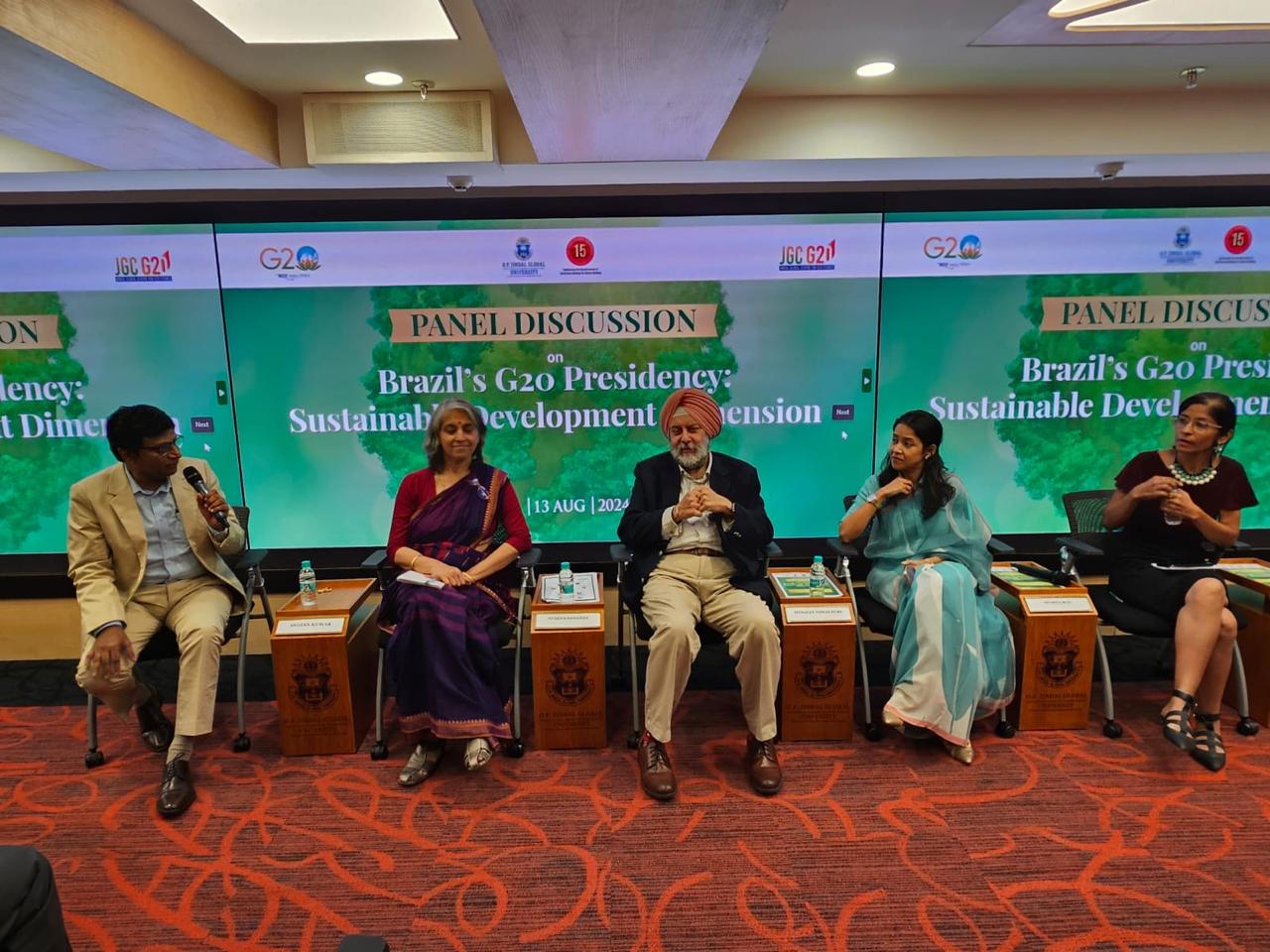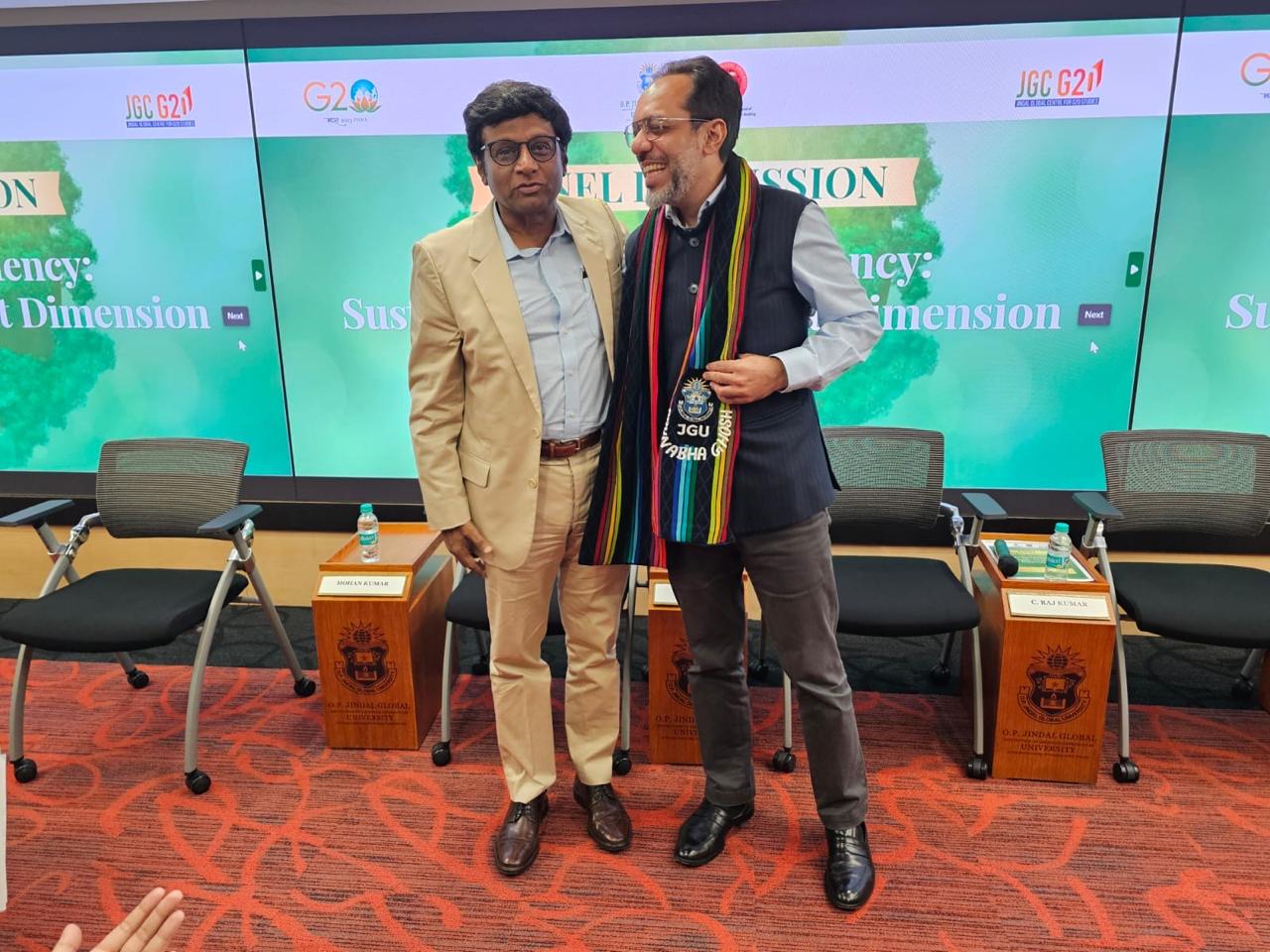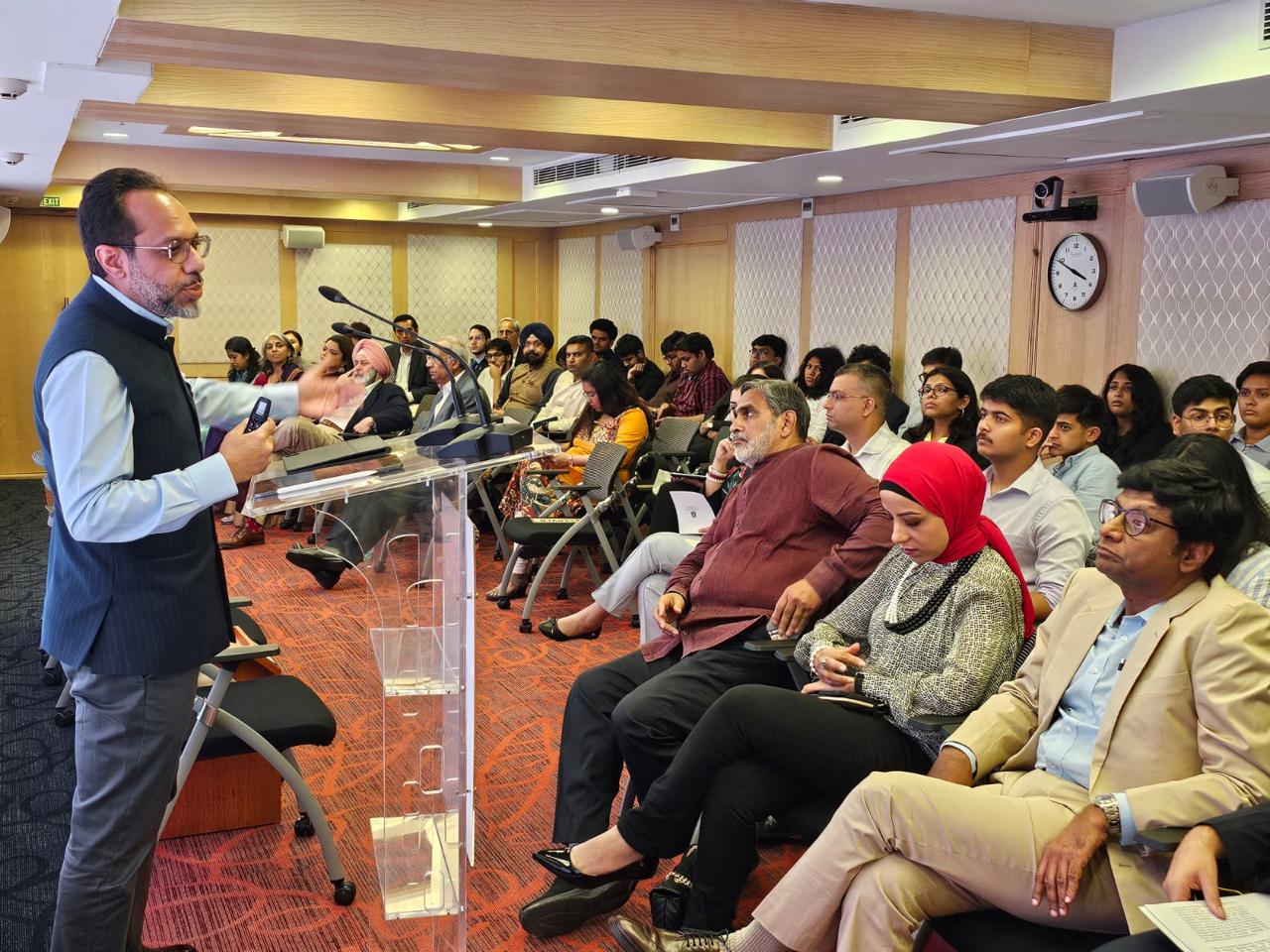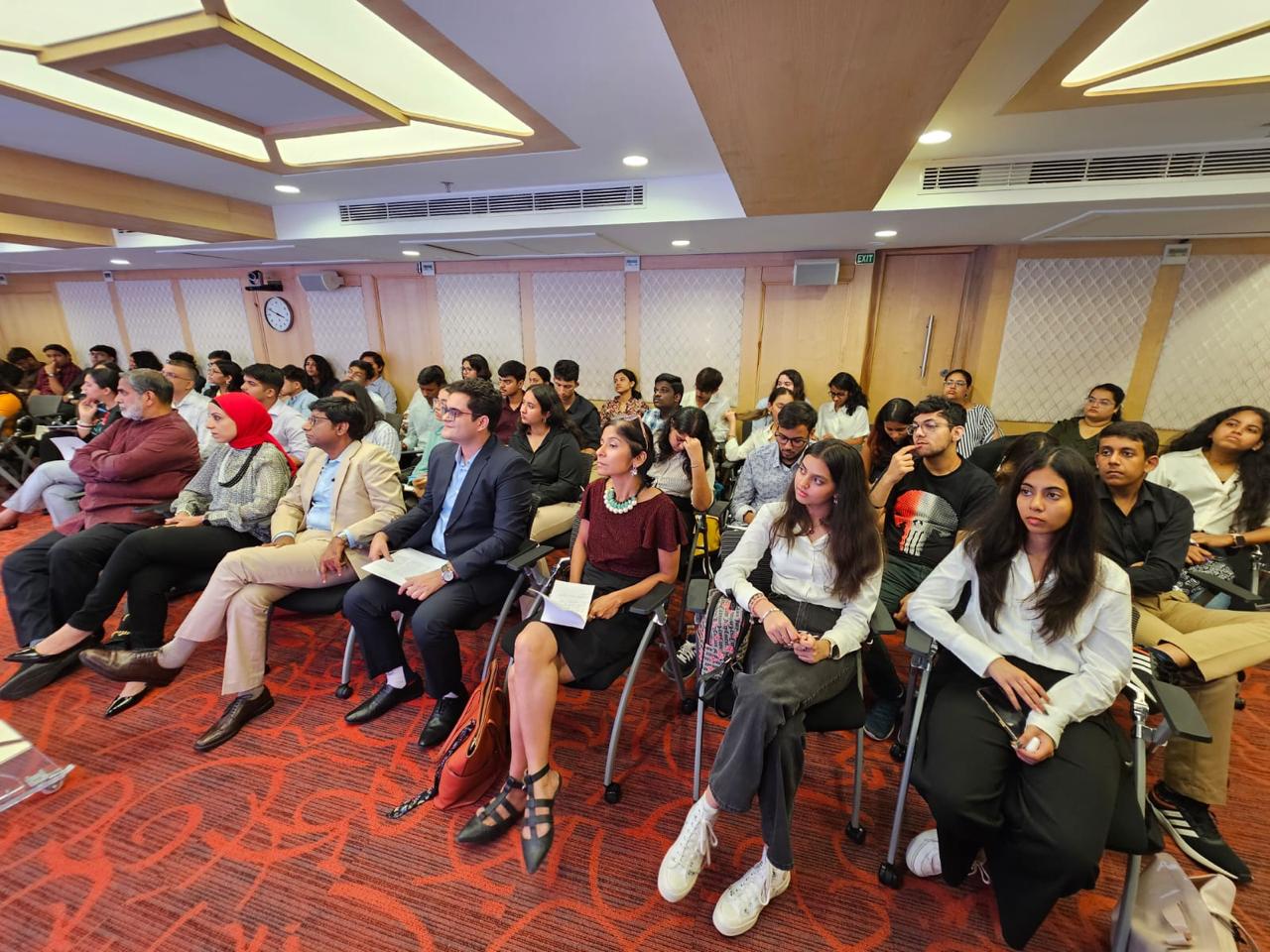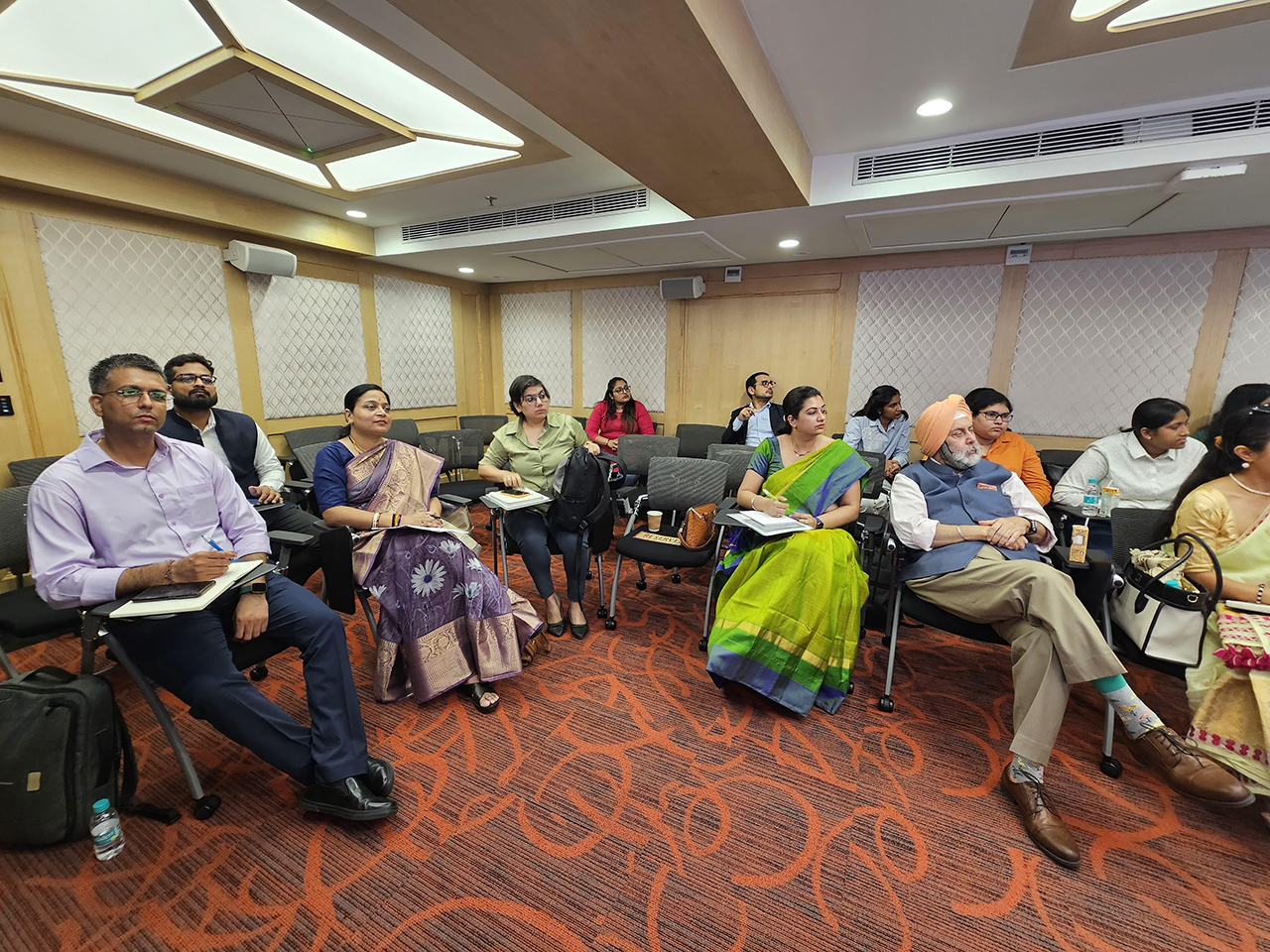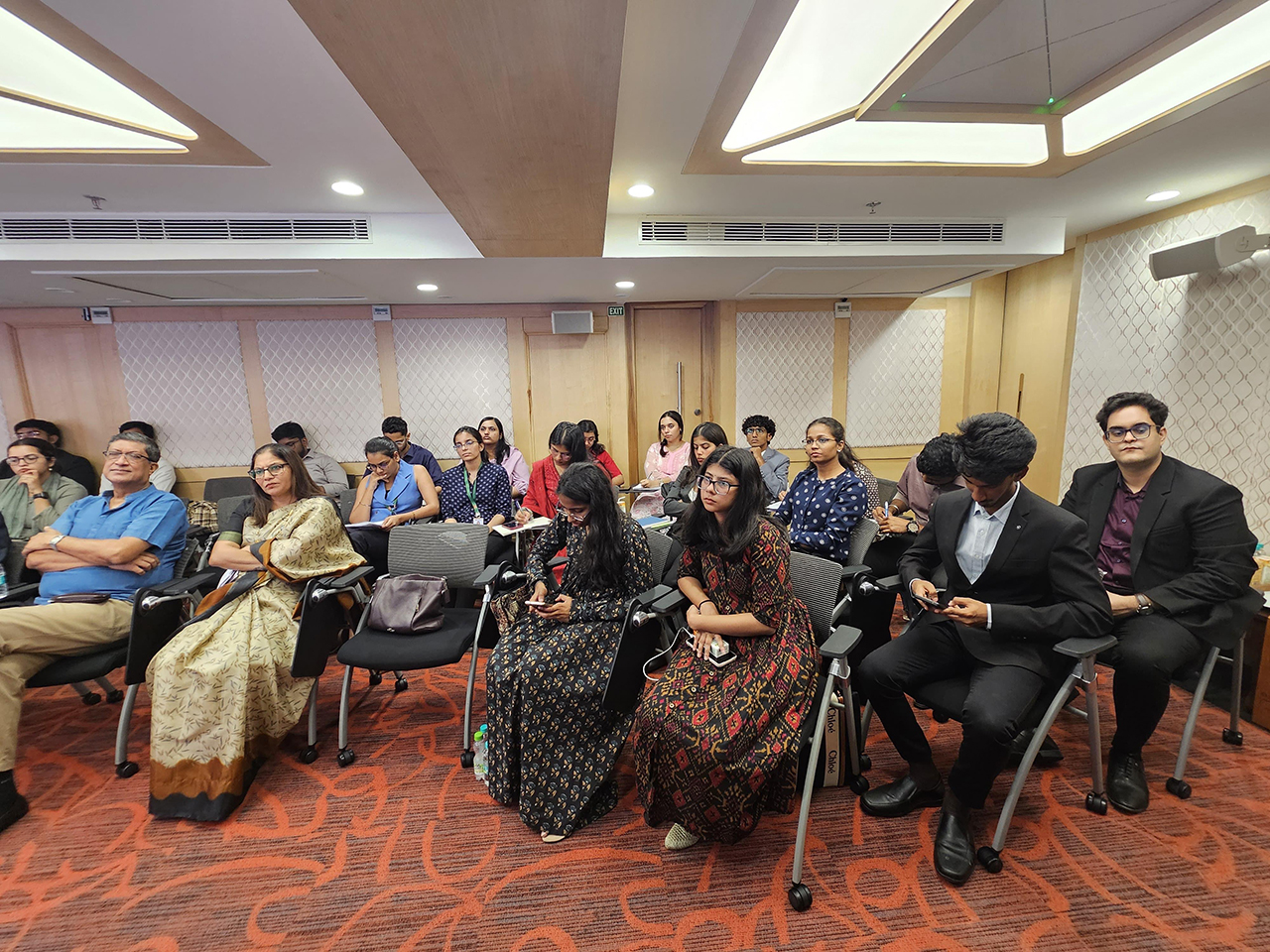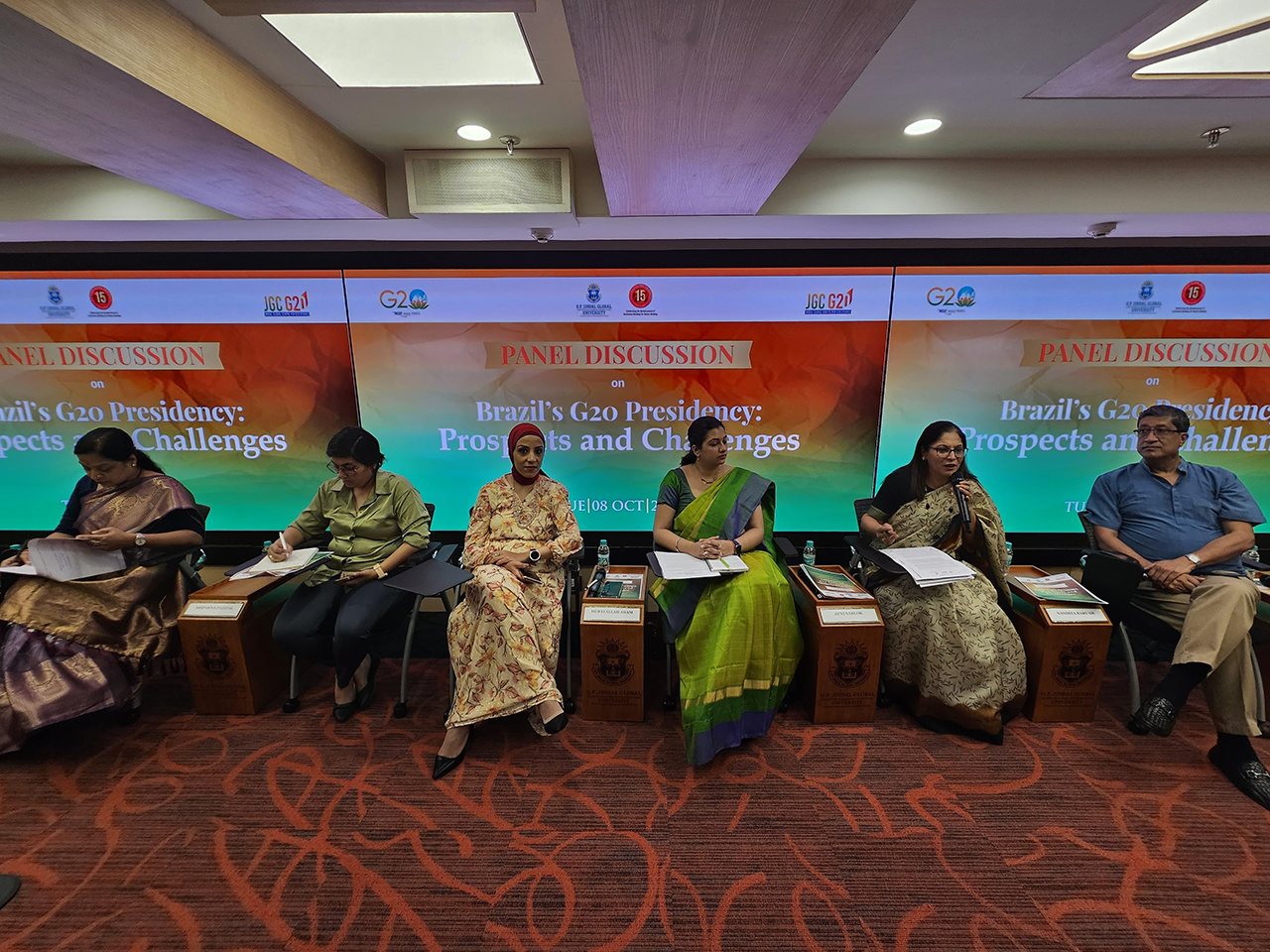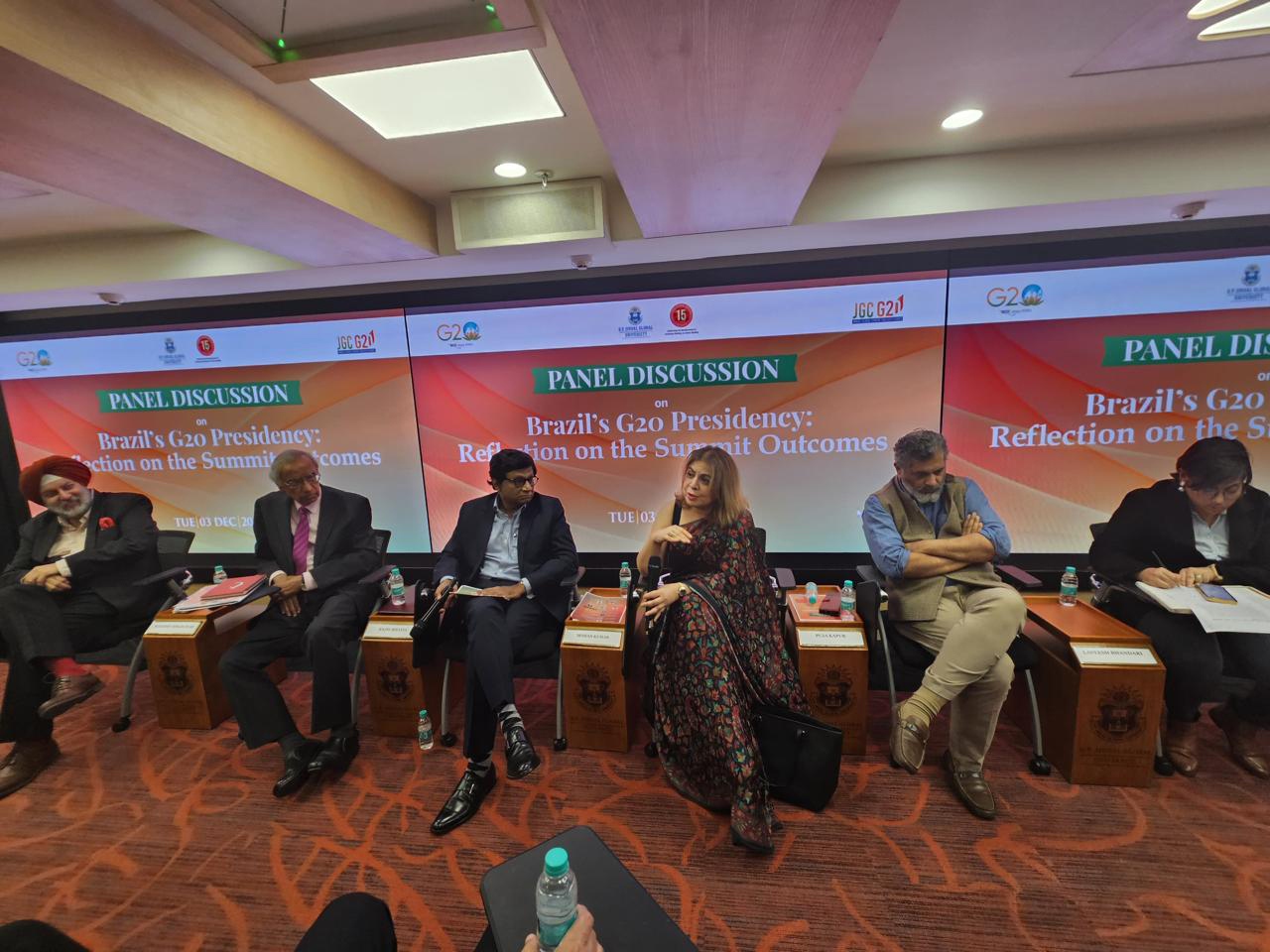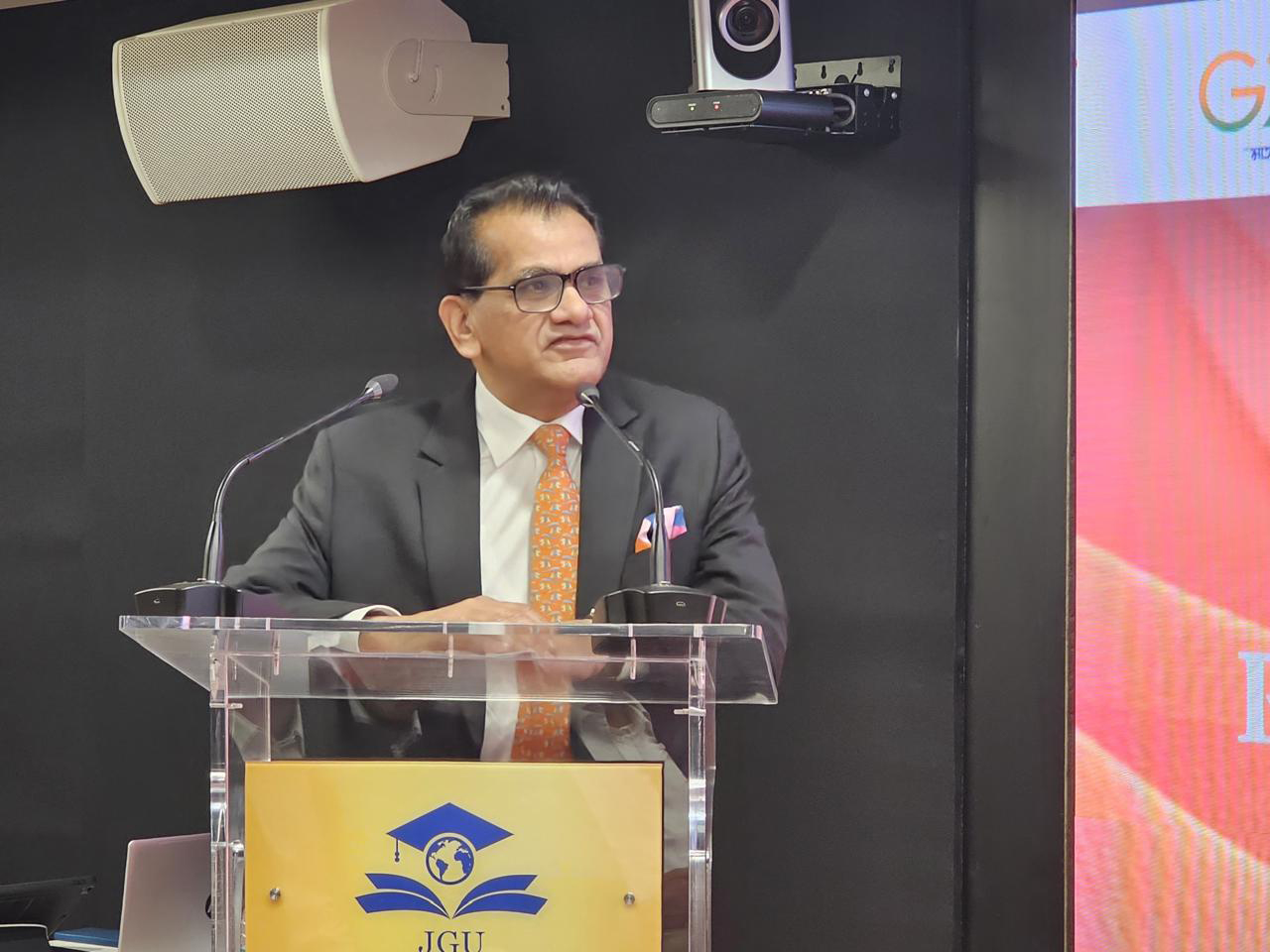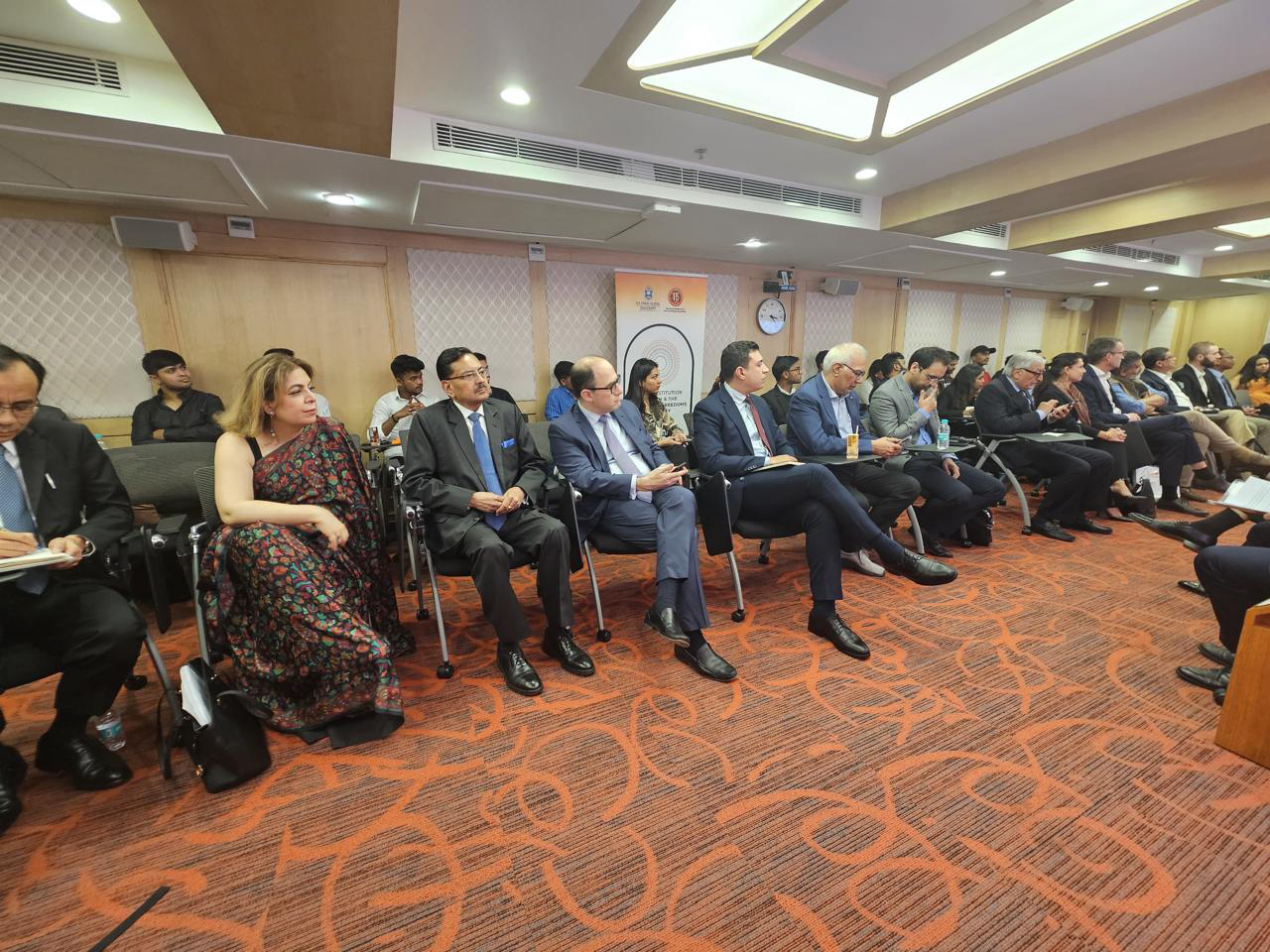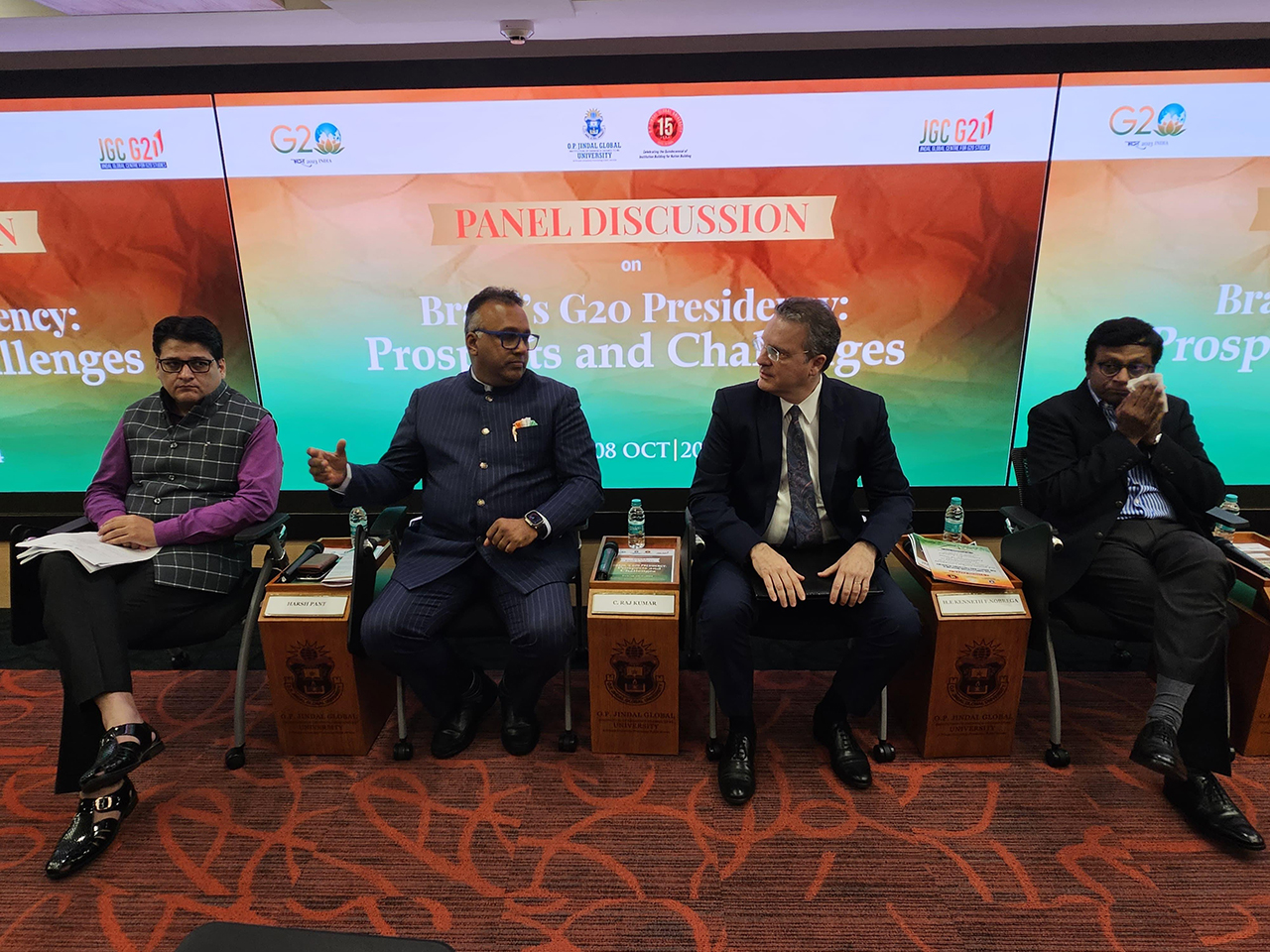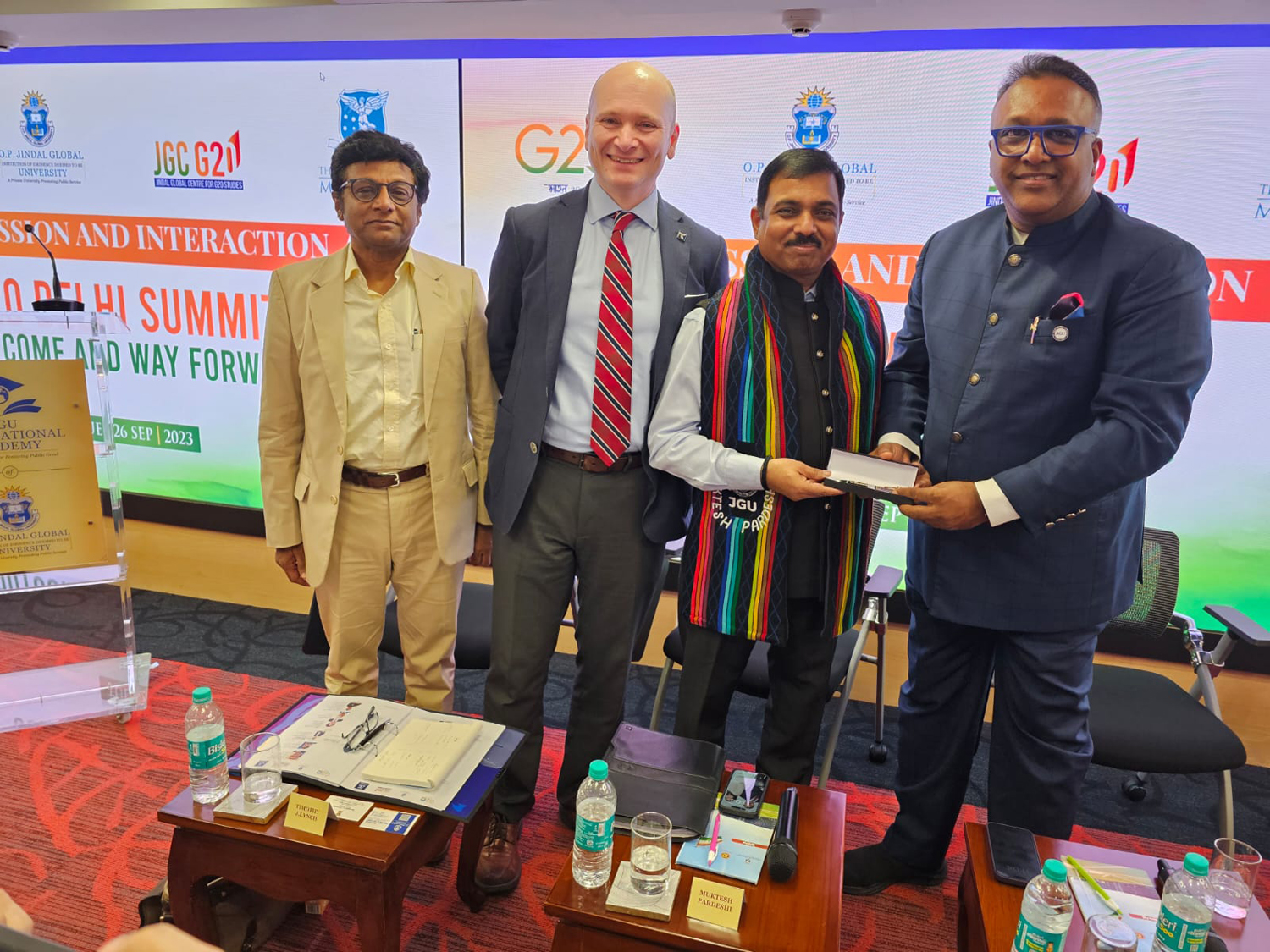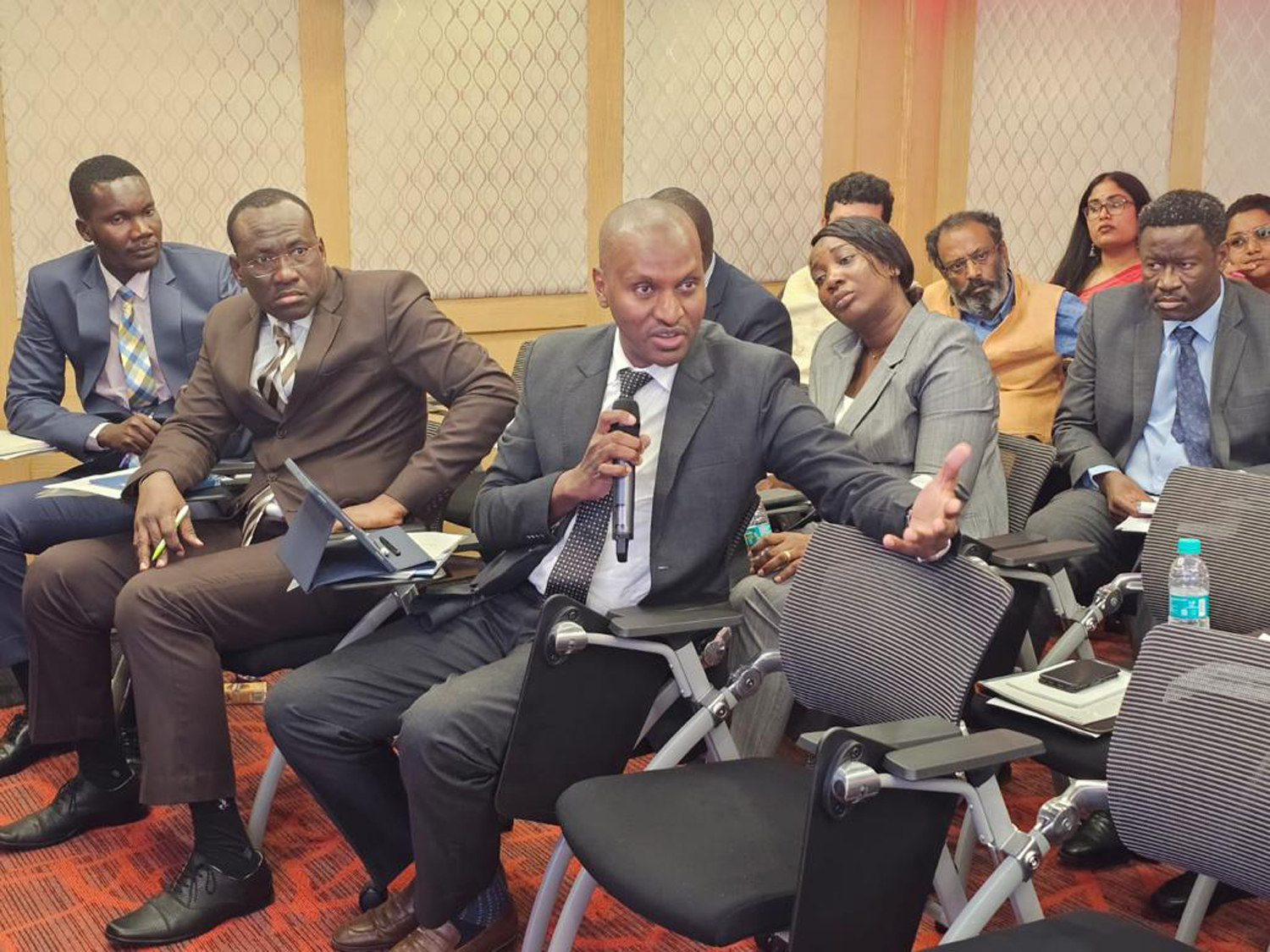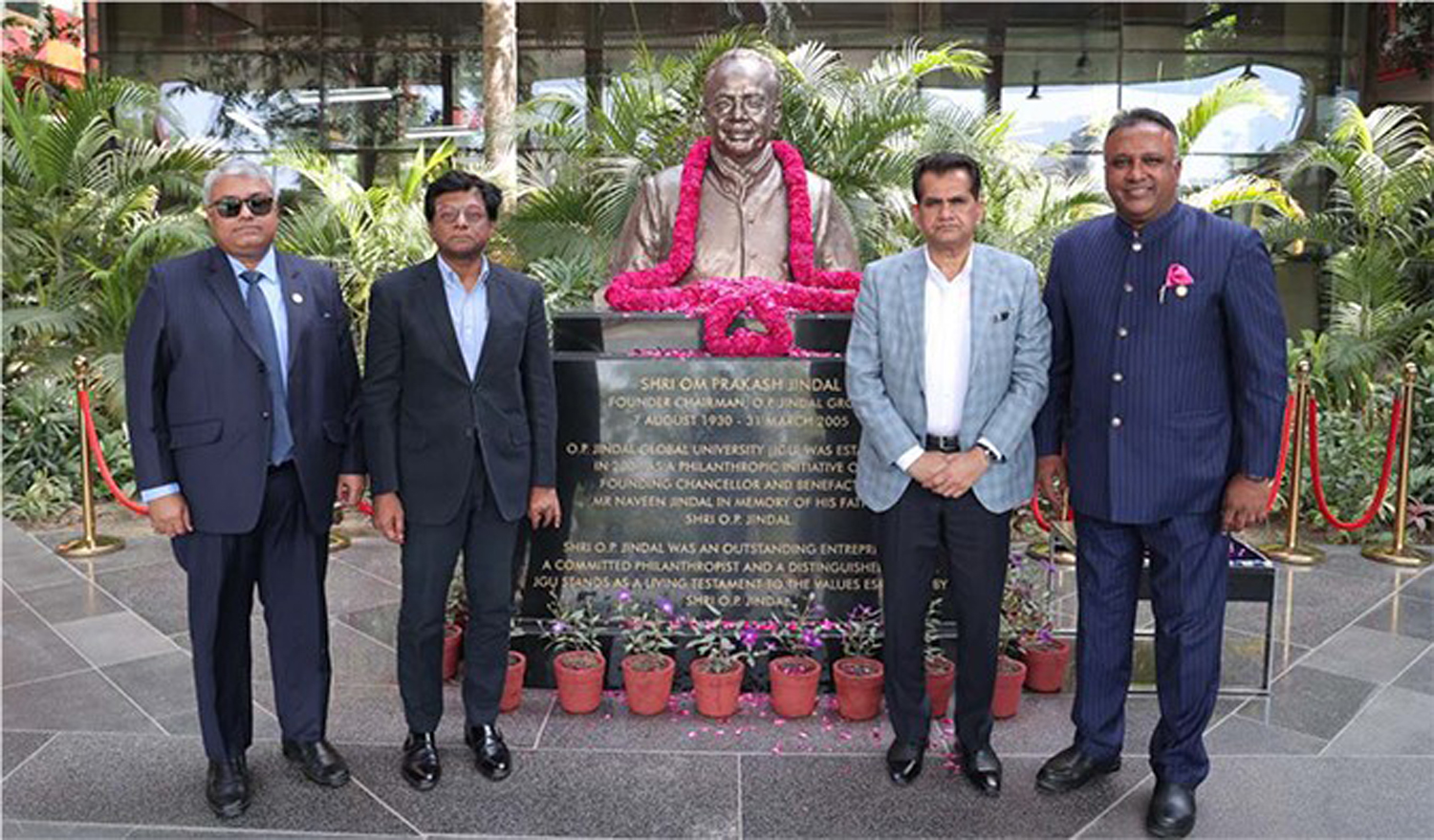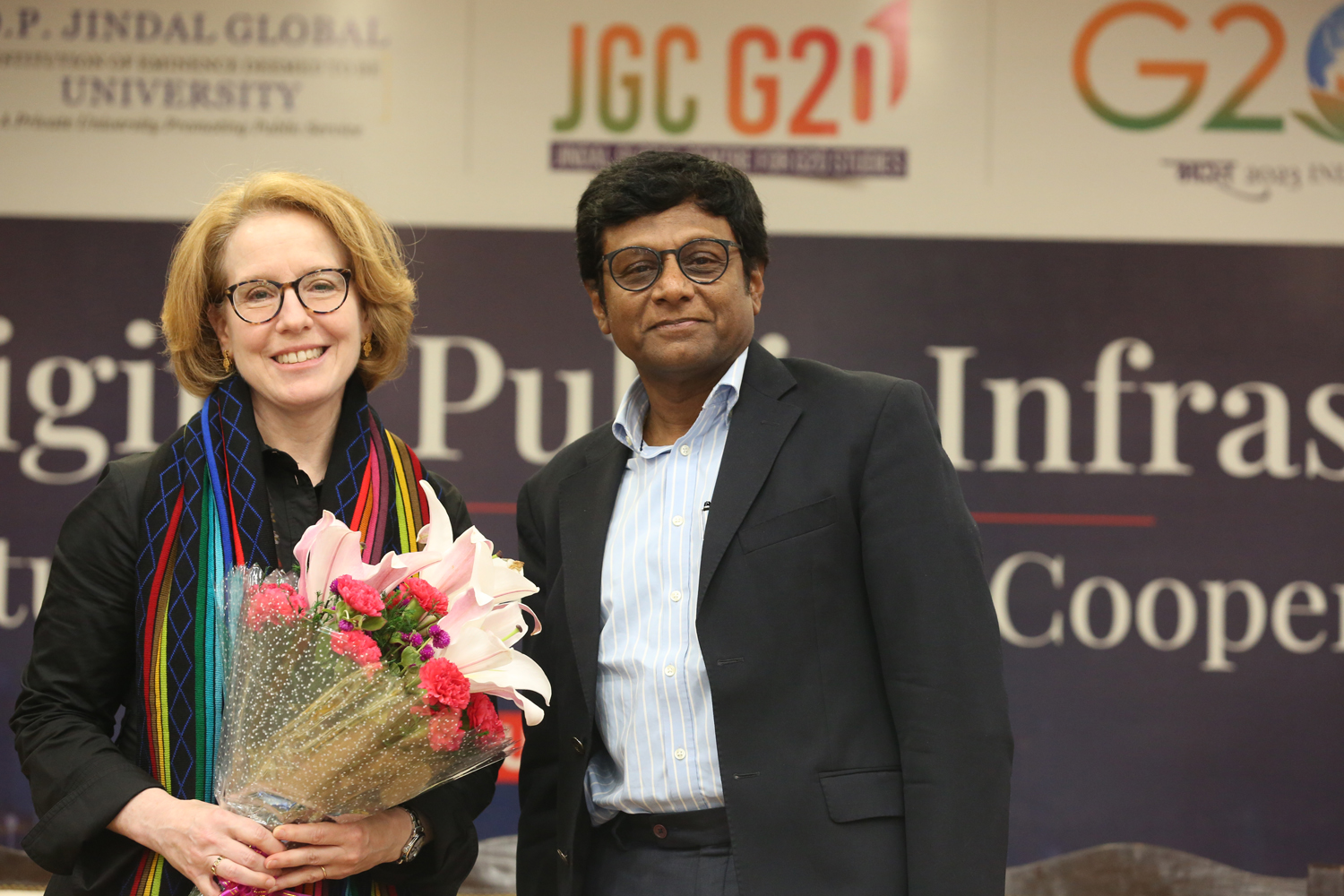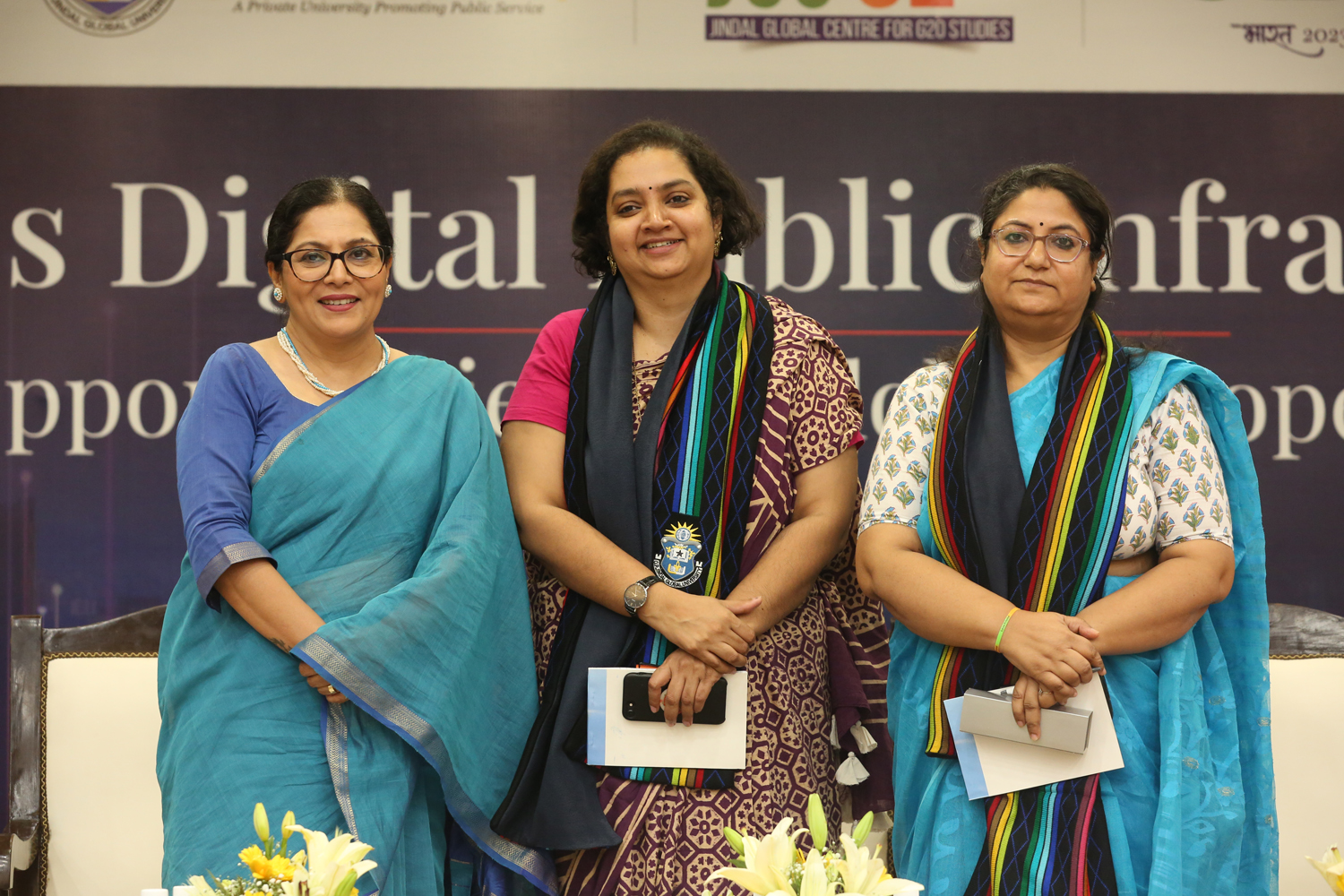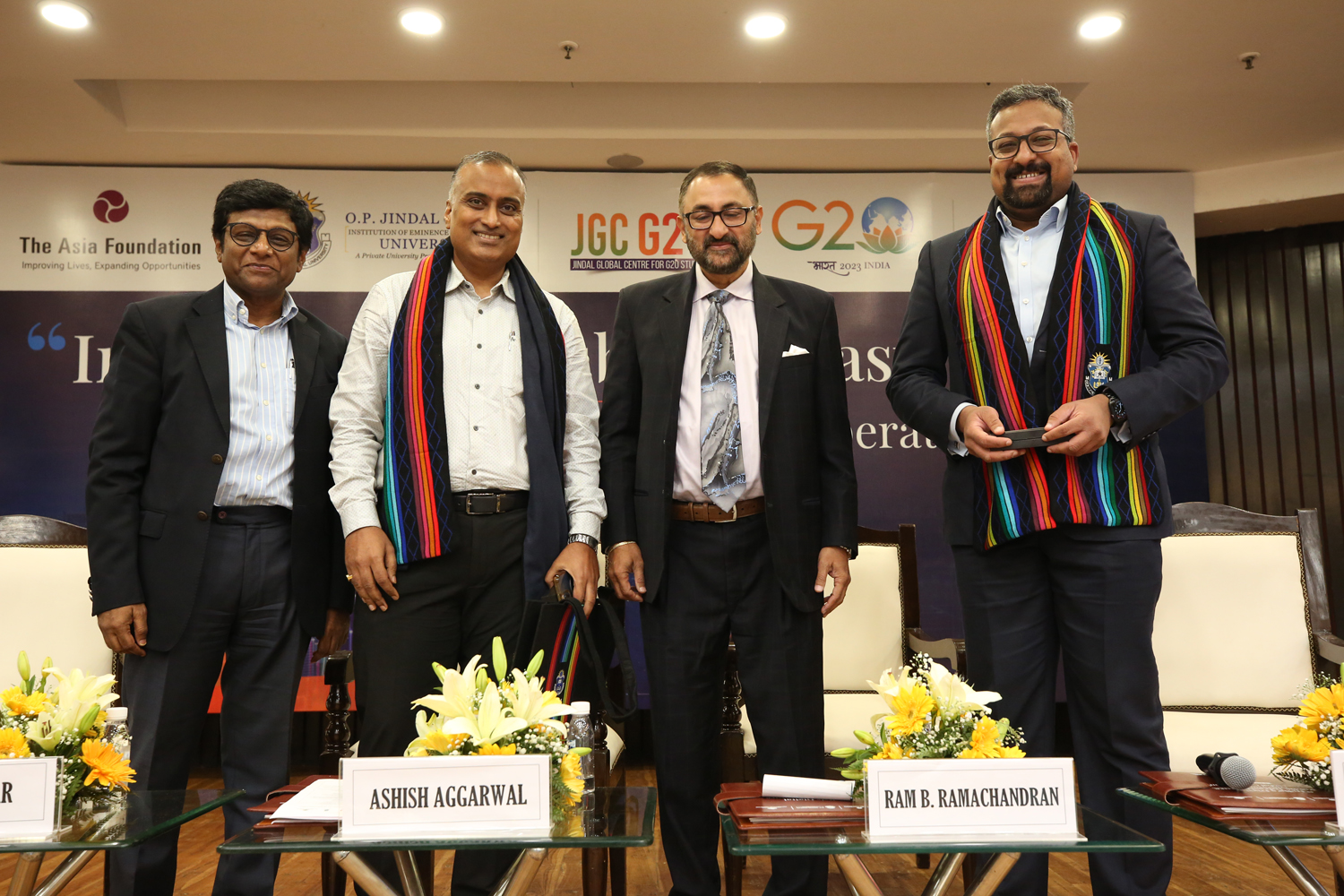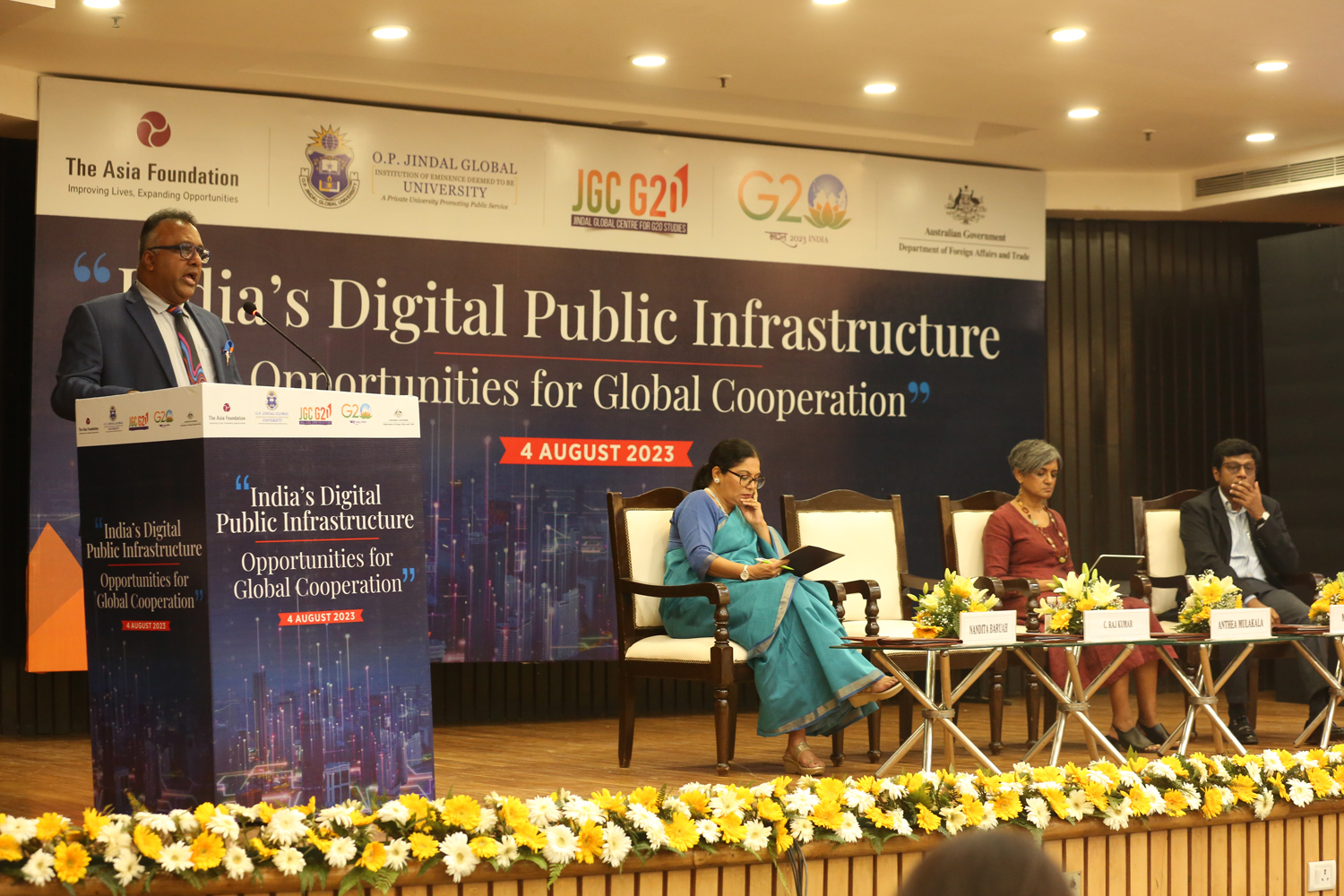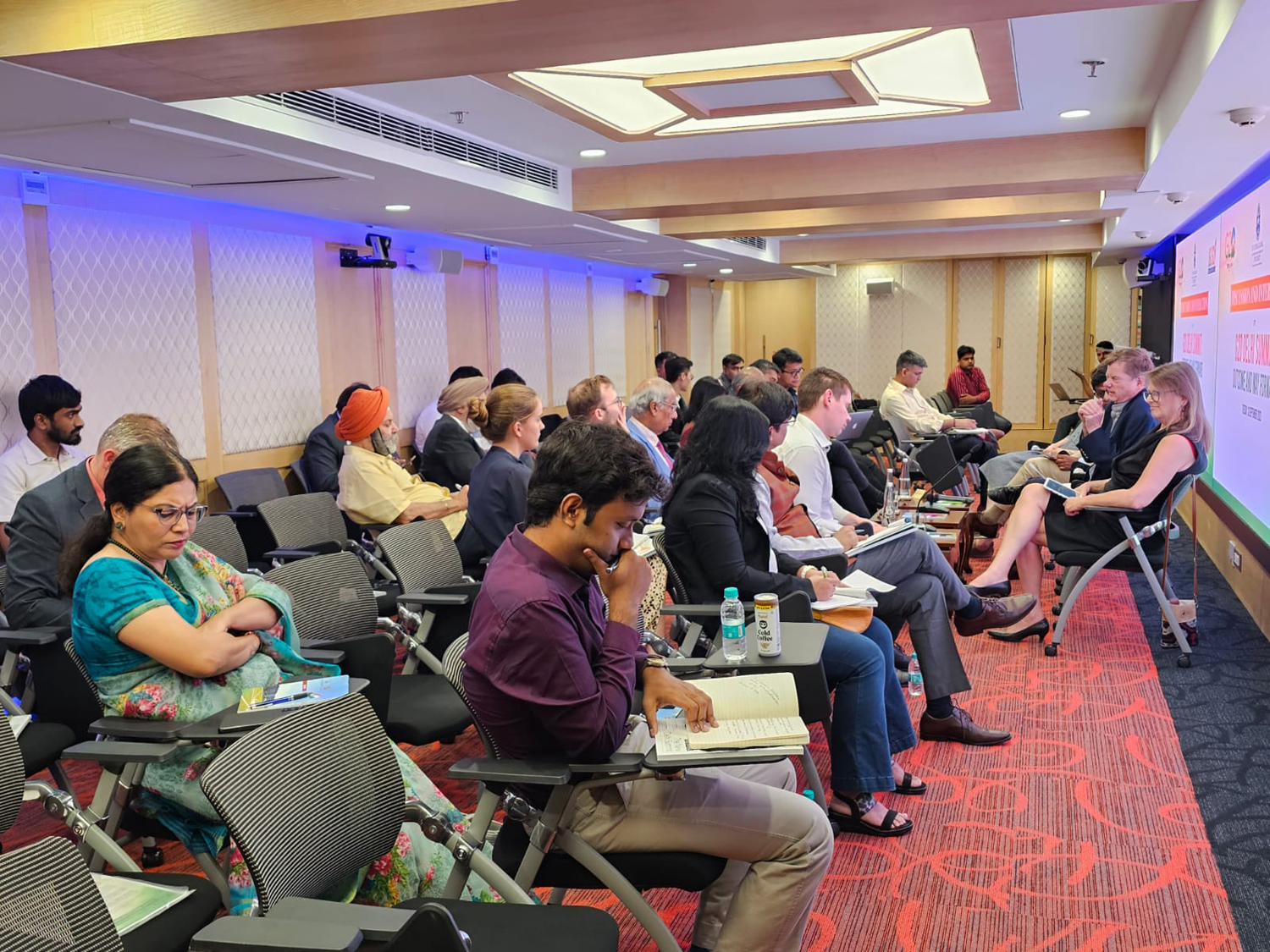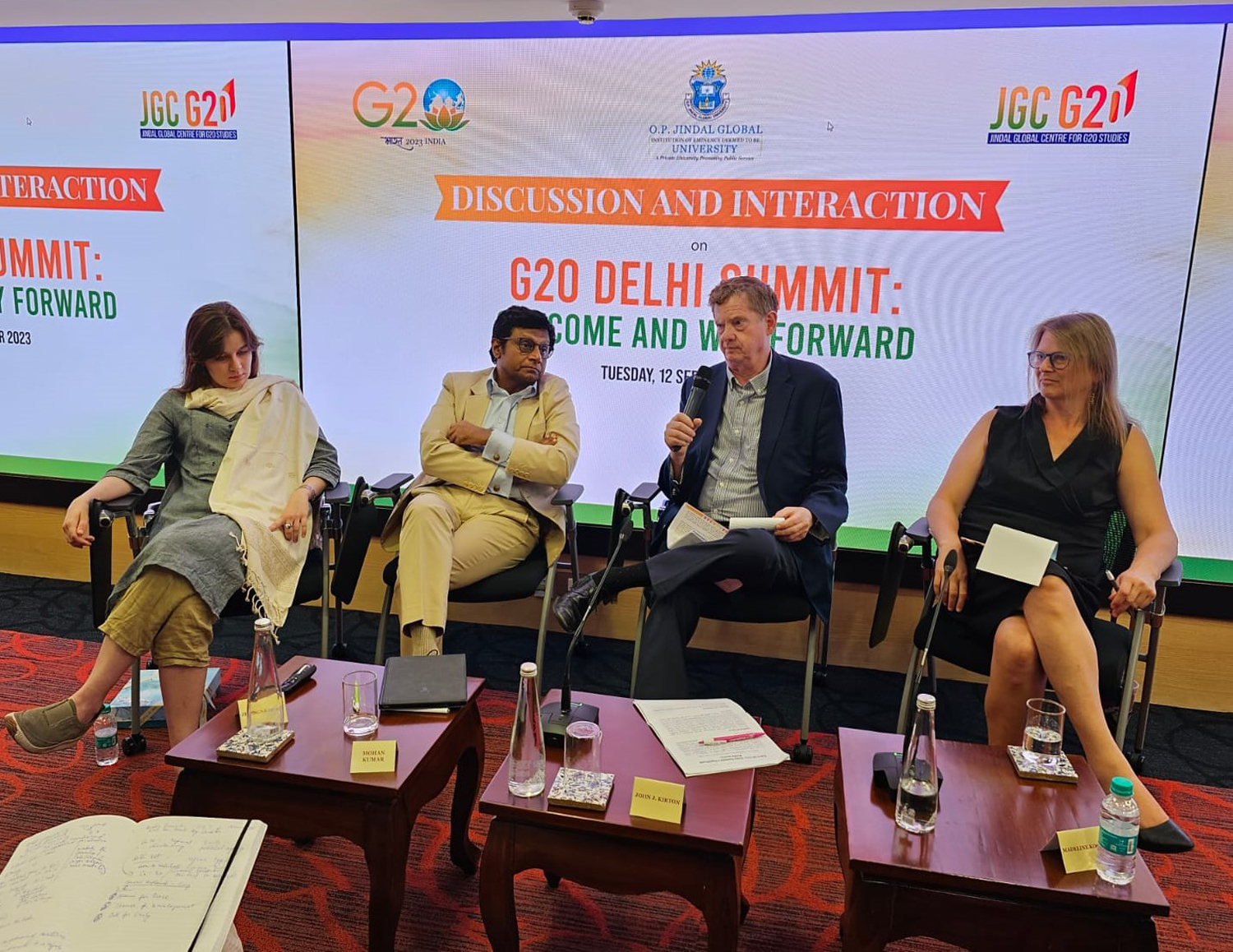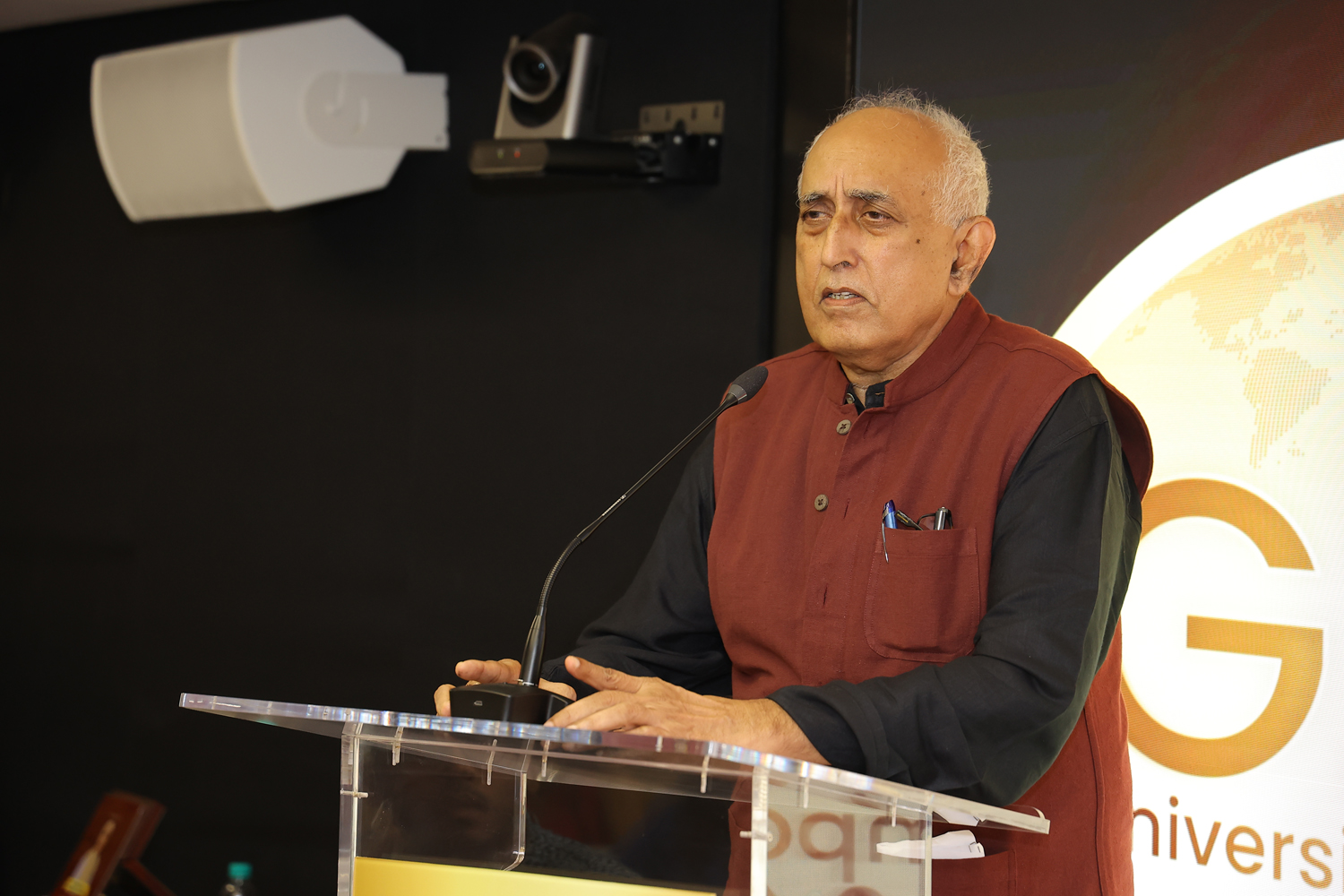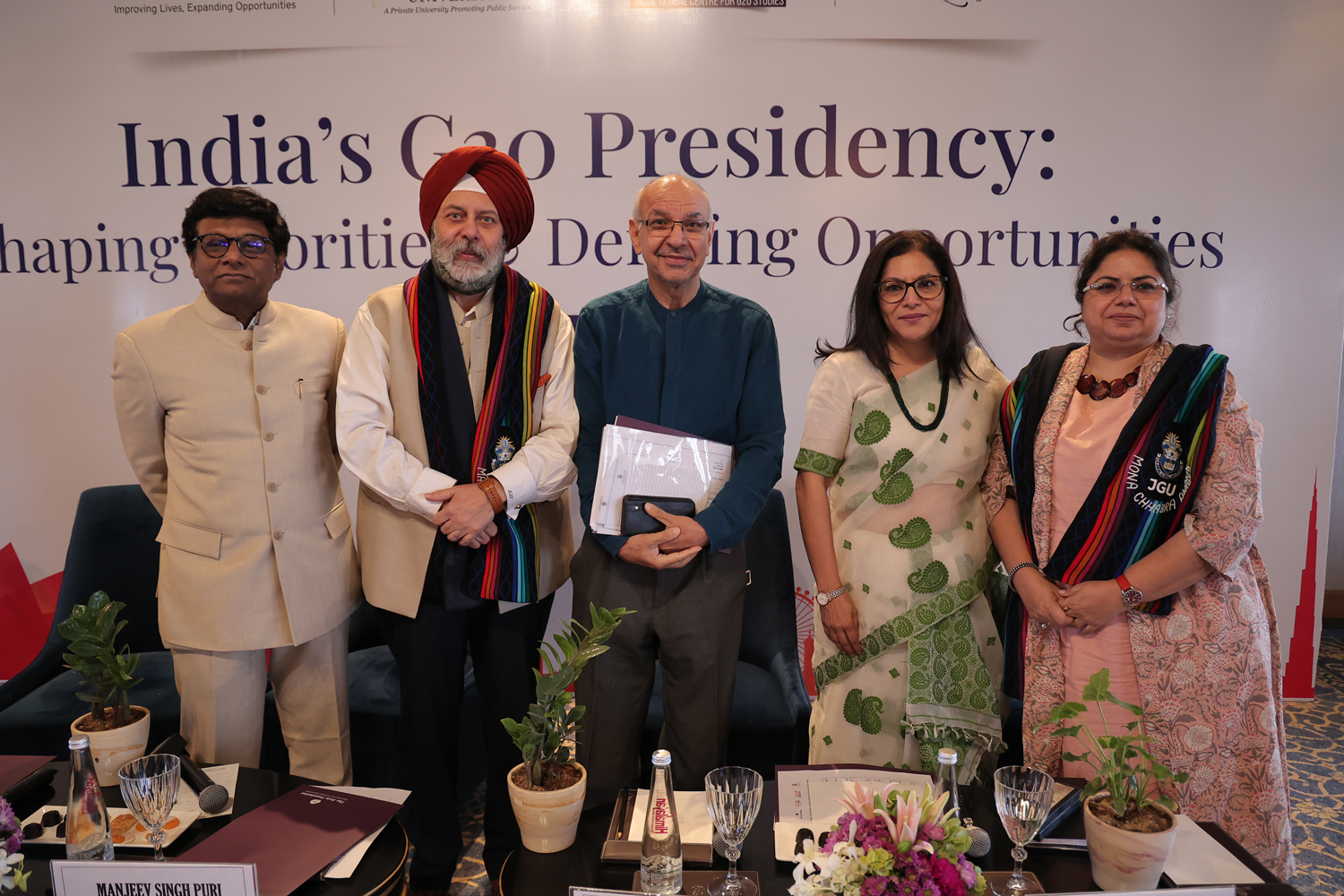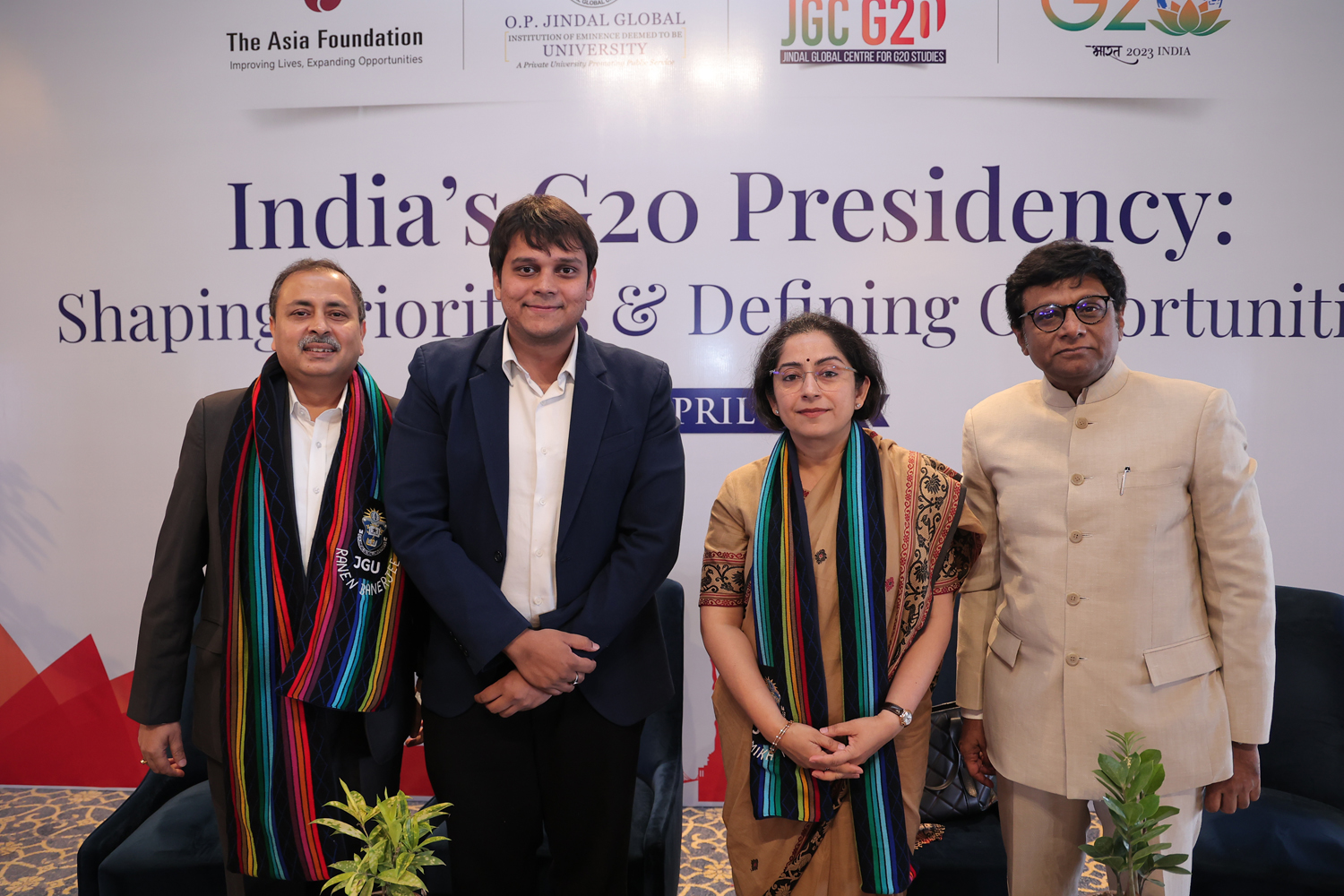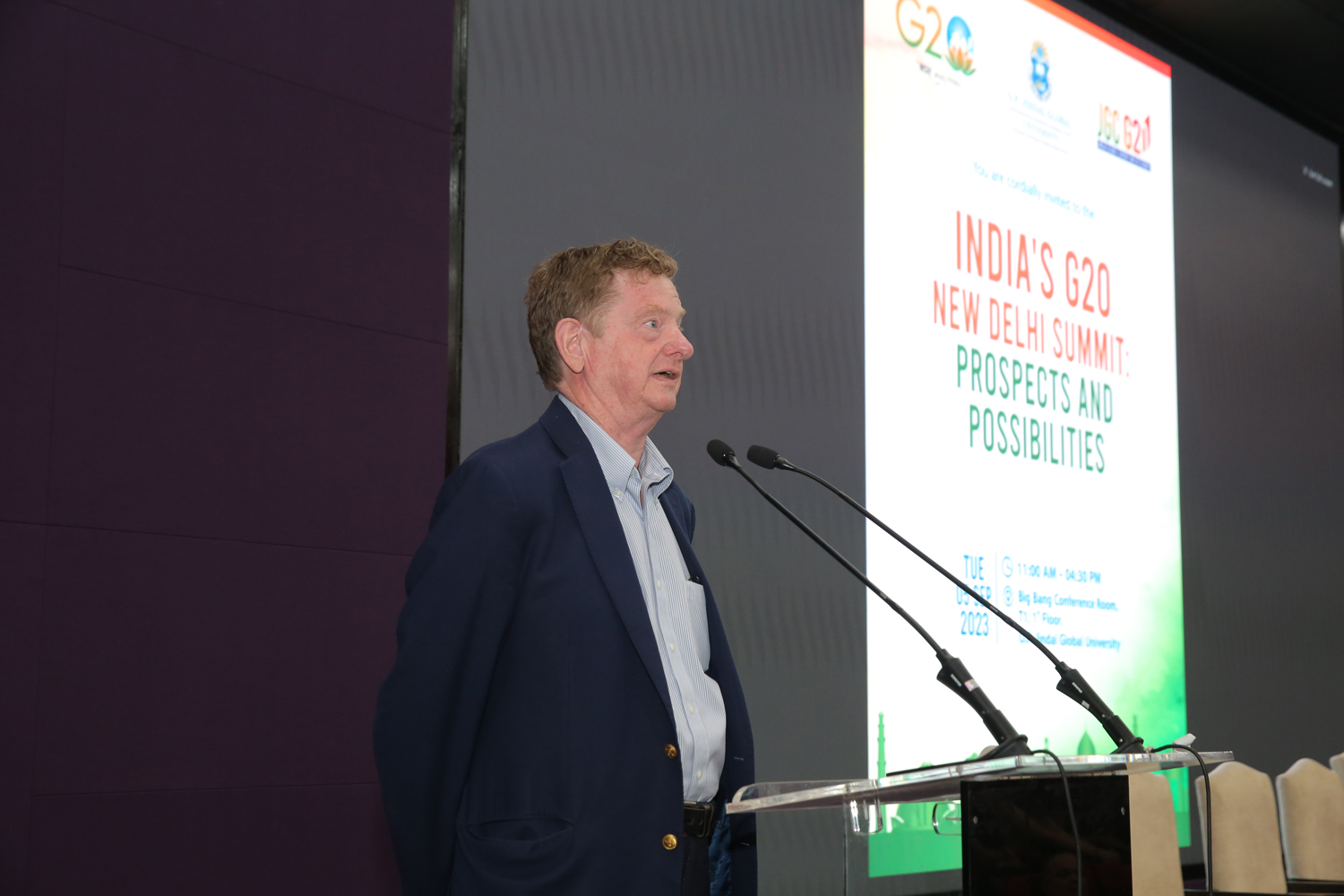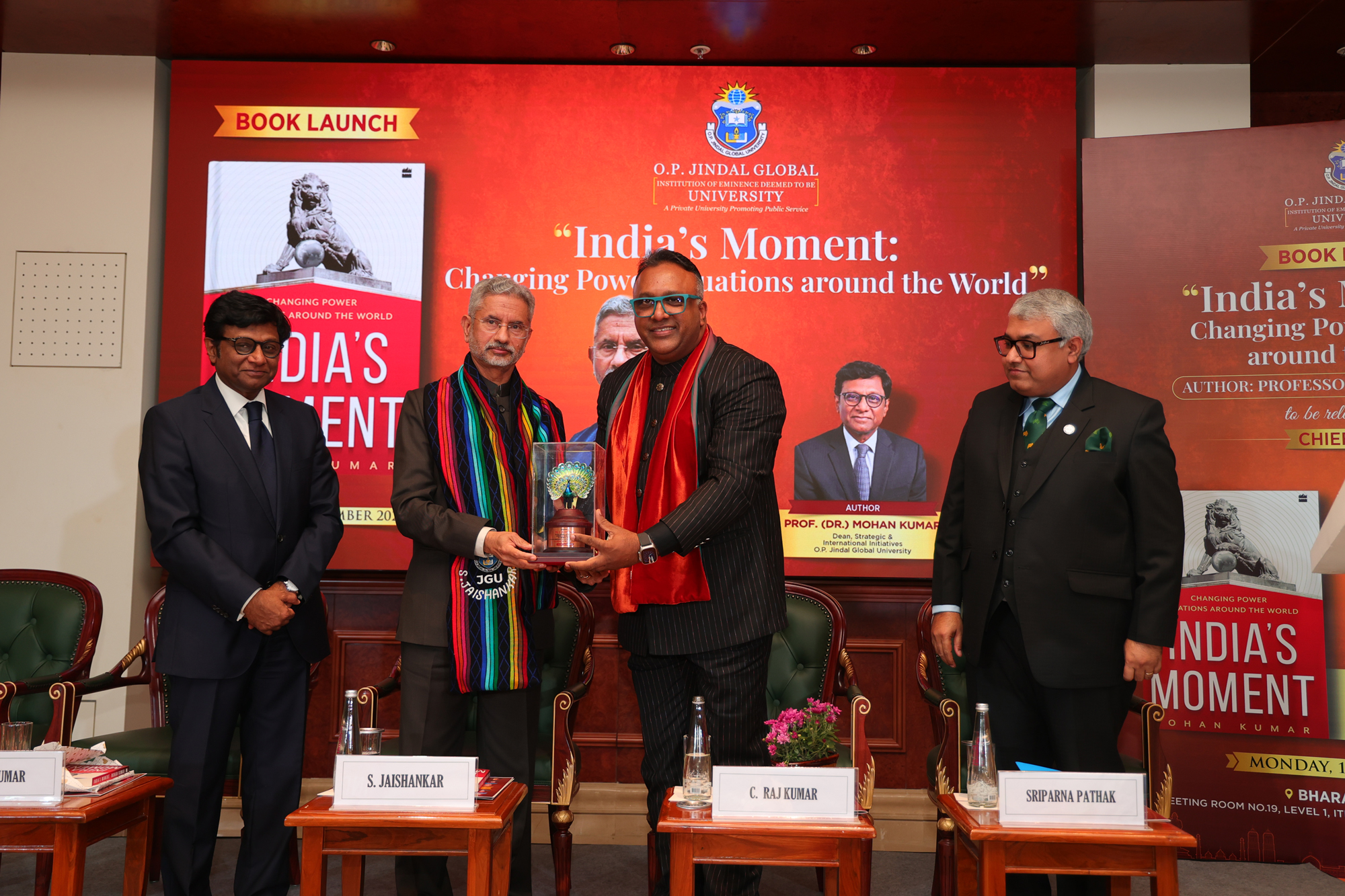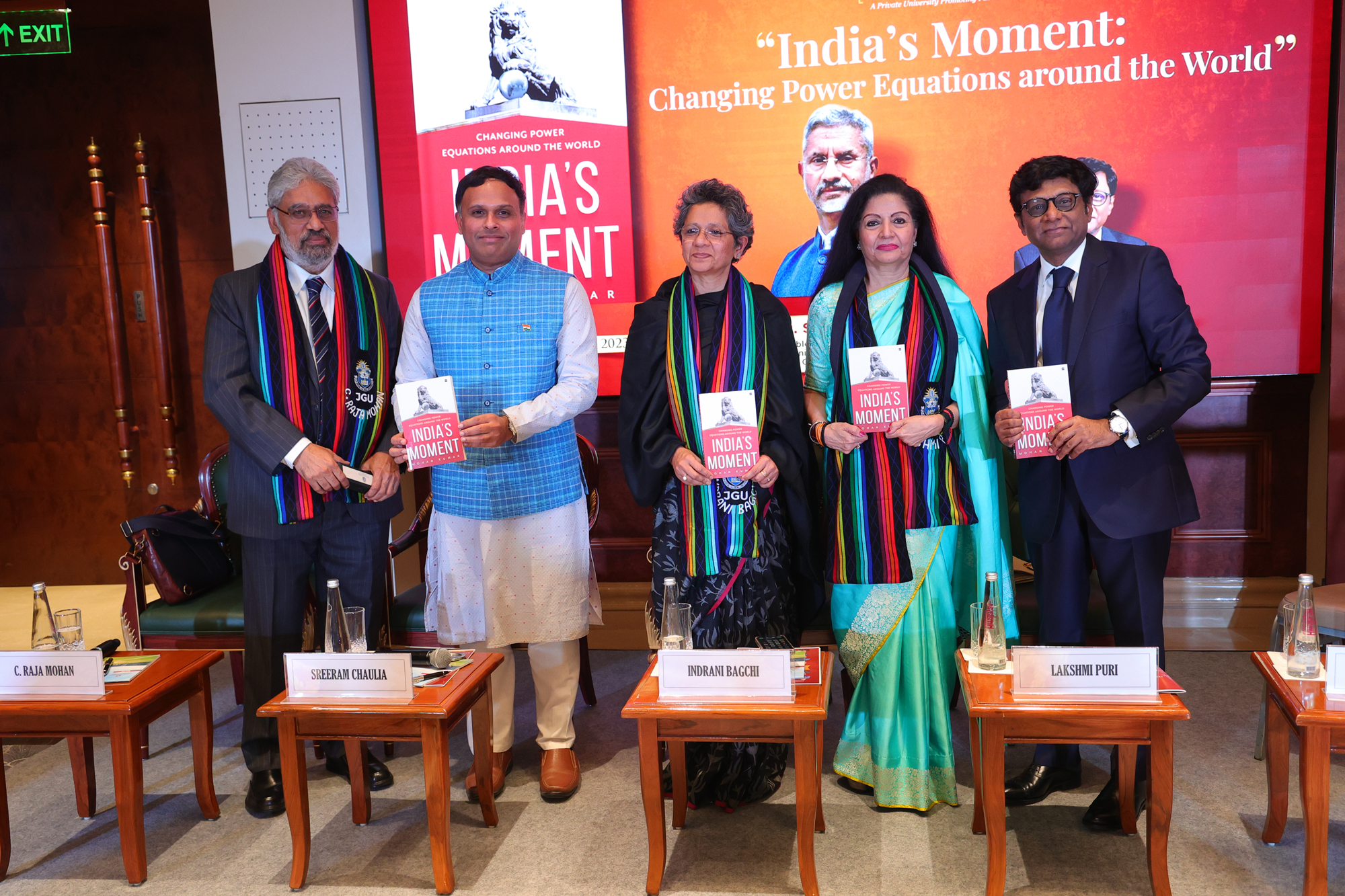Jindal Global Centre for G20 Studies (JGC4G20)
04/09/2023 2024-12-13 16:41Jindal Global Centre for G20 Studies (JGC4G20)
Jindal Global Centre for G20 Studies (JGC4G20)
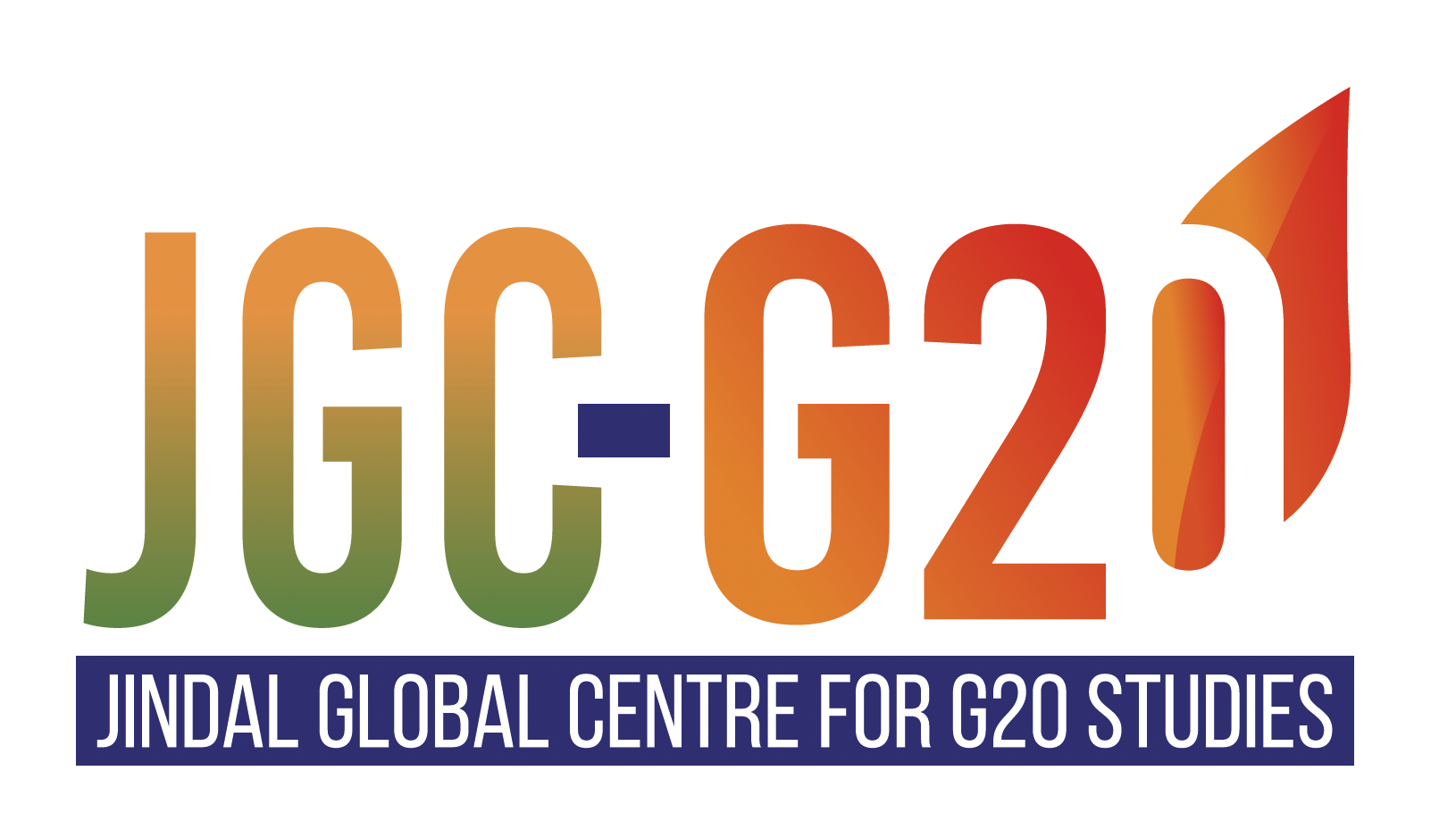
JGC4G20: Bridging Academia and the G20
It is a matter of great pride for all of India that we have assumed the presidency of the prestigious G20 forum. Immersed in this spirit with a vision to bridge the gap between Indian academia and global institutions, O.P. Jindal Global Institution of Eminence Deemed to be University (JGU) has established the Jindal Global Centre for G20 Studies (JGC4G20) on 16 January 2023. This will be the first research center established by any Indian university, which will exclusively focus on research, thought leadership, and capacity-building initiatives related to G20.
About JGC4G20
With more than 1,000 faculty members from over 48 countries and over 375 institutional collaborations from 67 countries in the world, JGU is equipped with the potential to become the most comprehensive hub for interdisciplinary knowledge and policymaking related to G20 studies in Indian academia and the wider Indian society. Professor (Dr.) Mohan Kumar, the former Indian Ambassador to France and the Dean of the Office of International Affairs & Global Initiatives and Professor of Diplomatic Practice at the Jindal School of International Affairs of JGU, was appointed as the Inaugural Director of the JGC4G20.

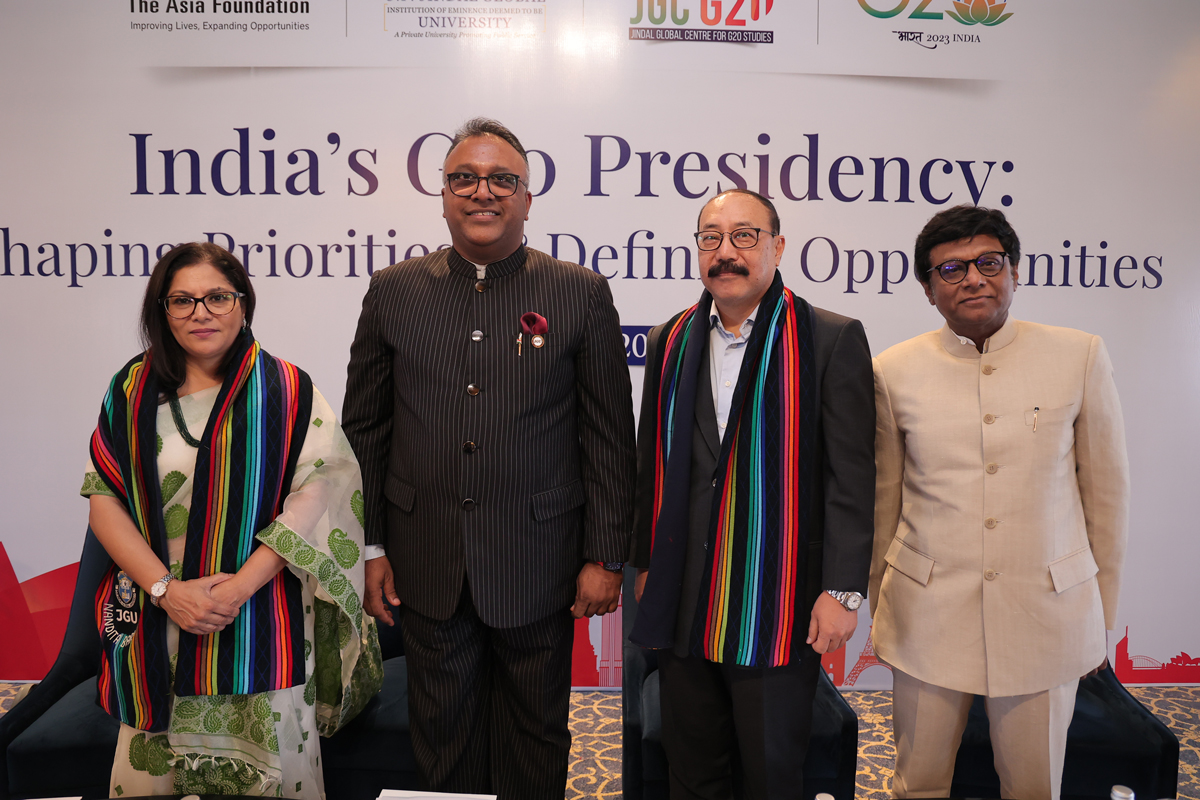
Objectives
With a vision to transcend and democratize the functioning of the G20 forum, JGC4G20 aims to fulfill five major objectives:
- To develop a strong vision for enabling academic institutions across the G20 region to build international collaborations between them.
- To launch new initiatives to promote G20 studies and a greater understanding of the countries in G20 in all its dimensions across other Indian higher education institutions.
- To organize periodic lectures, seminars, and conferences of topical relevance to India-G20 cooperation in partnership with other universities, think-tanks, and government officials.
- To build and strengthen capacities for pursuing research relating to G20 countries within India with a strong focus on joint research between institutions in G20.
- To develop multisectoral training and capacity-building programs in close partnership with higher education institutions in the G20.
Action-Plan for 2024
- Accelerating SDGs (Sustainable Development Goals) in Education and Health.
- Accelerated, Inclusive, and Resilient Economic Growth.
- Green Development and Climate Finance.
- Multilateral Institutions for the 21st Century.
- 3 Fs: Food, Fuel, and Fertilizers.
- Gender: Women-led development.
- To host a Global Conference of 200 universities from G20 with representation of 10 universities from each G20 partner to focus on the future of education.
- To organize a G20 Ambassadors Conclave that will promote a dialogue on the future of diplomacy.
- To host a Global Justice Colloquium with a focus on bringing together lawyers and judges of the G20 countries to discuss and debate the state of the justice systems across G20.
- To host the World Sustainability Forum for bringing together thought leaders and institutions in G20 to engage on issues relating to the environment and climate change.
- To host the Global Public Policy and Development Dialogue for bringing together policymakers and academics in G20 to discuss issues confronting the world of policy and development.

Team
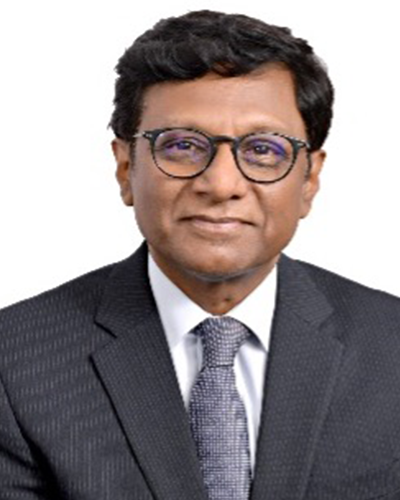
Prof. (Dr.) Mohan Kumar

Varunesh Singh
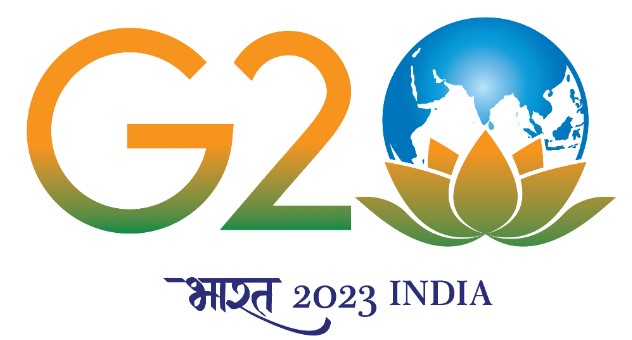
India's G20 Leadership: Shaping Global Economic Cooperation
India, as the current holder of the G20 Presidency for the term spanning from December 2022 to November 2023, plays a pivotal role in steering global economic cooperation within the G20 framework. Here's an overview of India's role and responsibilities:
Leadership Responsibilities:
India assumes the prestigious G20 Presidency, a platform that facilitates international economic cooperation and policy discussions among major economies. As the host, India is responsible for setting the agenda and guiding discussions on critical global economic issues.Consultative Approach:
India, in its leadership role, engages in extensive consultations with other G20 member countries to ensure the collective response to global economic challenges. Troika Support:
Troika Support:
India is supported by a “troika,” which includes Indonesia (the immediate past host) and Brazil (the next host). This troika system provides continuity and strategic guidance.
Key Focus Areas:
During its Presidency, India has identified several key focus areas for G20 discussions, including accelerating progress on Sustainable Development Goals (SDGs) in Education and Health, promoting inclusive and resilient economic growth, addressing climate finance and green development, reforming multilateral institutions, tackling issues related to food security, and promoting women-led development.
Global Conferences and Dialogues:
India is hosting several events and initiatives, such as a Global Conference involving 200 universities from G20 countries, a G20 Ambassadors Conclave to promote diplomatic dialogue, a Global Justice Colloquium, a World Sustainability Forum, and a Global Public Policy and Development Dialogue, all aimed at fostering cooperation and addressing pressing global challenges.
Global Economic Governance:
India’s leadership within the G20 contributes to shaping and strengthening global economic governance, ensuring that the G20 remains at the forefront of addressing international economic issues.
Indian Perspective:
India’s approach to the G20 Presidency reflects its commitment to promoting inclusivity and sustainability in global economic policies and decisions.
The G20: Shaping Global Economic Cooperation

The Group of Twenty (G20) is a coalition of 19 countries and the European Union, collectively representing a significant portion of the world's economic and demographic landscape. Here's a snapshot of what the G20 stands for and how it operates:
- The G20 comprises 19 member countries: Argentina, Australia, Brazil, Canada, China, France, Germany, India, Indonesia, Italy, Japan, Republic of Korea, Mexico, Russia, Saudi Arabia, South Africa, Türkiye, United Kingdom, and United States, along with the European Union.
- Collectively, G20 members account for approximately 85% of the global Gross Domestic Product (GDP), over 75% of global trade, and represent about two-thirds of the world’s population.
- The G20 is the foremost platform for international economic cooperation, actively contributing to the development and reinforcement of global economic governance.
- It addresses critical global economic issues and challenges, playing a pivotal role in shaping policies and strategies.
- Unlike many international organizations, the G20 operates without a permanent secretariat or staff.
- The G20 Presidency rotates annually among its members, and the host country is selected from various regional groups.
- The 19 member countries are divided into five groups, each comprising a maximum of four countries. Most groups are regionally based.
- Group 1 (Australia, Canada, Saudi Arabia, and the United States) and Group 2 (India, Russia, South Africa, and Türkiye) are exceptions to this regional pattern.
- The European Union, the 20th member, is not part of any specific regional group.
- Every year, a different country from one of the five groups assumes the G20 Presidency.
- Each group has an equal opportunity to hold the Presidency when it’s their turn.
- Currently, India, from Group 2, holds the G20 Presidency, serving from December 1, 2022, to November 30, 2023.
- The G20 Presidency plays a vital role in shaping the G20’s agenda, consulting with other member nations and responding to global economic developments.
- A “troika” system supports the Presidency, consisting of the current, immediate past, and next host countries.
- During India’s Presidency, the G20 troika includes Indonesia, India, and Brazil.

India’s Role in G20: Shaping Global Economic Cooperation
Setting the Agenda: India's presidency allows it to set the G20's agenda, including hosting 215 meetings across 55 locations in the country. The theme, "Vasudhaiva Kutumbakam" (One Earth, One Family, One Future), emphasizes unity in diversity.
Prioritizing Key Issues: India's focus areas include urban infrastructure development, renewable energy transition, resilient health systems post-Covid-19, sustainable development goals, and women-led development.
Sharing Success: India aims to share its successful economic reforms, like "Make in India" and "Digital India," to stimulate growth in other emerging economies.
A Day of Insightful Discussions and Visionary Plans for India's G20 Leadership
India's G20 Presidency: Shaping Priorities and Defining Opportunities
On the 17th of April 2023, New Delhi witnessed a gathering of distinguished scholars, diplomats, and thought leaders at an event hosted by the Jindal Global Centre for G20 Studies in collaboration with The Asia Foundation. The event, titled 'India's G20 Presidency: Shaping Priorities and Defining Opportunities,' set the stage for a day of discussions on India's role as the G20 chair in a challenging global landscape.
Shri Harsh Vardhan Shringla, Chief Coordinator for India’s G20 Presidency in 2023, delivered an impactful inaugural address. He emphasized India’s commitment to sustainable and inclusive growth, digital transformation, climate change mitigation, and women-led development as key priorities during its G20 presidency. Mr. Shringla also introduced India’s innovative ‘Lifestyle for Environment’ initiative and stressed the importance of climate finance and digital innovations.
Session 1 brought together experts, including Dr. Shamika Ravi, Prof. Deepanshu Mohan, and Mr. Ranen Banerjee, to discuss inclusive growth in the G20 context. Topics ranged from capital mobility and debt settlement to addressing food and energy insecurities. The panelists highlighted the challenges and opportunities for creating more equitable and sustainable economies.
Session 2, moderated by Ambassador Manjeev Singh Puri, focused on addressing the global climate crisis. Experts like Prof. Maharaj K. Pandit, Dr. Mona Chhabra Anand, and Mr. Shirish Garud discussed the importance of resilient infrastructure, nature-based solutions, and data sharing in combating climate change. They emphasized the need for international cooperation and innovative approaches.
Session 3, moderated by Nandita Barua, delved into gender equity and women’s economic empowerment. The panelists, including Dr. Nisha Taneja, Prof. Sanjay Kathuria, and Ms. Yamini Atmavilas, discussed policies to bridge the digital divide, support women’s workforce participation, and combat gender biases in the job market.
In the final session, experts such as Ms. Anthea Mulakala, Amb. Prof. Ravi Thapar, and Prof. Rajat Kathuria reflected on the state of multilateralism in a changing geopolitical landscape. They highlighted the need for reform and greater involvement of the Global South in shaping the multilateral order, discussing challenges and opportunities for cooperation and change.
Publications
Events
- Panel Discussion held on the topic: Brazil’s G20 Presidency: Possible Opportunities and Potential Outcomes | Watch | 18th March, 2024
- BRAZIL’S G20 PRESIDENCY: GLOBAL GOVERNANCE REFORMS | Watch | 18th April, 2024.
- Book Launch India’s G20 Legacy: Shaping a New World Order | Watch | 18th April 2024.
- Brazil’s G20 Presidency: Sustainable Development Dimension | Watch | 13th August 2024.
- Brazil’s G20 Presidency: Prospects and Challenges | Watch | 8th October 2024
- Brazil’s G20 Presidency: Reflection on the Summit Outcomes | Watch | 3rd December 2024
- India’s G20 Presidency: Shaping Priorities and Defining Opportunities, New Delhi | 17th April 2023
- India’s Digital Public Infrastructure: Opportunities for Global Cooperation, IIC New Delhi | 4th August 2023
- G20 Universities Impact Summit Implementing SDGs and Beyond, JGU International Academy, New Delhi | Watch | 23rd August 2023
- Report on G20 Universities Impact Summit Implementing SDGs | Watch | 23rd August 2023
- India’s G20 New Delhi Summit: Prospects and Possibilities, O.P.Jindal University | Watch | 5th September 2023
- G20 Delhi Summit: Outcome and Way Forward, JGU International Academy, New Delhi | Watch | 12th September 2023
- Making South-South Cooperation Work for Africa: Challenges and Opportunities for the African Union as a Member of the G20. | Watch | 20th October 2023
- G20 Delhi Summit: Outcome and Way Forward, JGU International Academy, New Delhi | Watch | 26th September.
- Book Launch India’s Moment: Changing Power Equations around the World by Dr. S. Jaishankar, Minister of External Affairs | Watch | 18th Dec, 2023.
